Every other week, an unhappy customer seems to take to Twitter to call out a fashion brand for falsely advertising unwearable clothes.
The latest outrage comes from Phoebe Buchan from Norfolk, who ordered a £17.50 White Dobby Mesh Frill Sleeve mini dress from I Saw It First...only to find that neckline was so small, only a grapefruit could fit through it.
While that might seem funny to many, it's just a symptom of how irresponsible these online fashion houses are being - targetting women with their advertising, pushing rock-bottom prices and refusing to produce clothes of any real quality.
With firms like Boohoo.com and I Saw It First offering ultra-cheap dresses, it’s easy to see why Brits spend the most on clothes every year than any other country in the EU. 50 years ago, we were buying less and mending more - something that isn’t feasible with the quality of clothing on offer now and the relentless marketing (particularly targeted at women) by these big firms.
It's not the fault of the customers, many of whom are young women without huge disposable incomes, but these fast fashion mistakes come at price for the planet.
We do need the government to take decisive action against irresponsible industries.
The work I’m doing in the EU is all about creating sustainable jobs for communities via the Green New Deal.
The Green New Deal is a set of goals created to tackle the climate crisis by putting social justice at the centre of everything. It will create secure, well paid jobs and investment in renewable energies and energy efficiency measures like cavity wall insulation.
We need to see incentives for British fashion houses to move away from virgin resources and rely instead on sophisticated recycling and upcycling methods, and we need to demand that they paid workers a living wage - wherever they may be.
Drastic action against our current fashion culture has to be taken now if we want to avoid this island drowning in badly-made, unethical, tie-dye t-shirts, or another humanitarian disaster like the Rana Plaza collapse.
According to Radio 4’s Today Programme, we’re buying five times more clothing than we did 30 years ago and every year, we chuck out 1 million tonnes of the stuff - with 20% going straight to landfill. Social media sponsored posts, online shopping and same-day delivery have all meant that it’s never been easier to get a new outfit for the weekend...every weekend.
Perhaps there should be a ‘fashion fine’against firms who create genuinely unwearable garments. Or a tax should be levied against companies who make clothes from virgin sources which are non recyclable. Rather than passing the cost onto the customer per item, a tax should be held against the company.
We need to look beyond blaming consumers and start going for the industry responsible for the gross amount of waste it produces.
Would anyone really want to buy a top that they knew had been made using slave labour? By getting firms to be transparent about their means of production - both material and human - we can start to open up that dialogue and where areas are found wanting, we should apply a financial hit against the firm rather than the garment.
Firms exploit slavery in other countries by outsourcing to the cheapest possible labour market. Many of us may rail against the idea of modern-day slavery but fail to make the connection between someone forced to work 12-hour shifts for the bare minimum in India and the latest bikini set advertised on Love Island.
It’s clear that we should only be allowing goods into our economy that are made using the same standards that we operate by here in the UK and in the EU. I sit on the employment and women’s rights committees in the European Parliament, and it’s obvious that if firms actually cared about improving the welfare of their workers, they’d be willing to abide by our environmental, health and safety and human rights laws.
A fashion tax might help to curb our excess and more stringent anti-slavery laws would go some way to pushing up the price of garments from the manufacturing end - a hike that companies should be forced to absorb. But the fact remains that all those women who died in Bangladesh six years ago were busy making our Zara, Mango and Benetton clothes. Fast fashion isn’t just an ecological time bomb - it’s a feminist issue and a human rights crisis too.
SHOP: The Best Sustainable Brands To Add To Your Wardrobe
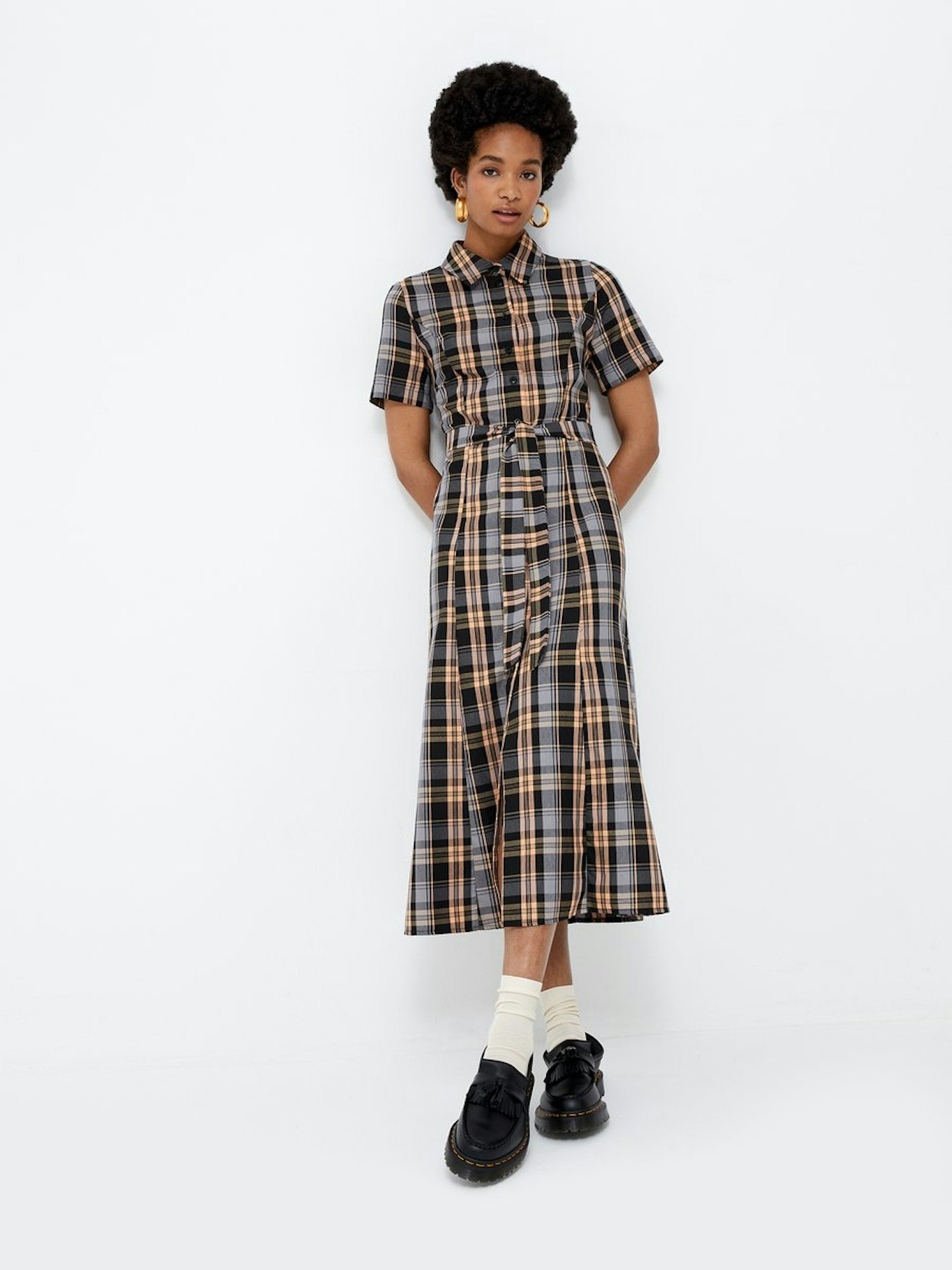 1 of 31
1 of 31OMNES, Leonie Midi Shirt Dress in Black Orange Check, £69
OMNES is a sustainable womenswear fashion brand that builds the bridge between conscious consumption with eco-friendly fabrics and responsible design at its core. Look out for its beyond-pretty prints.
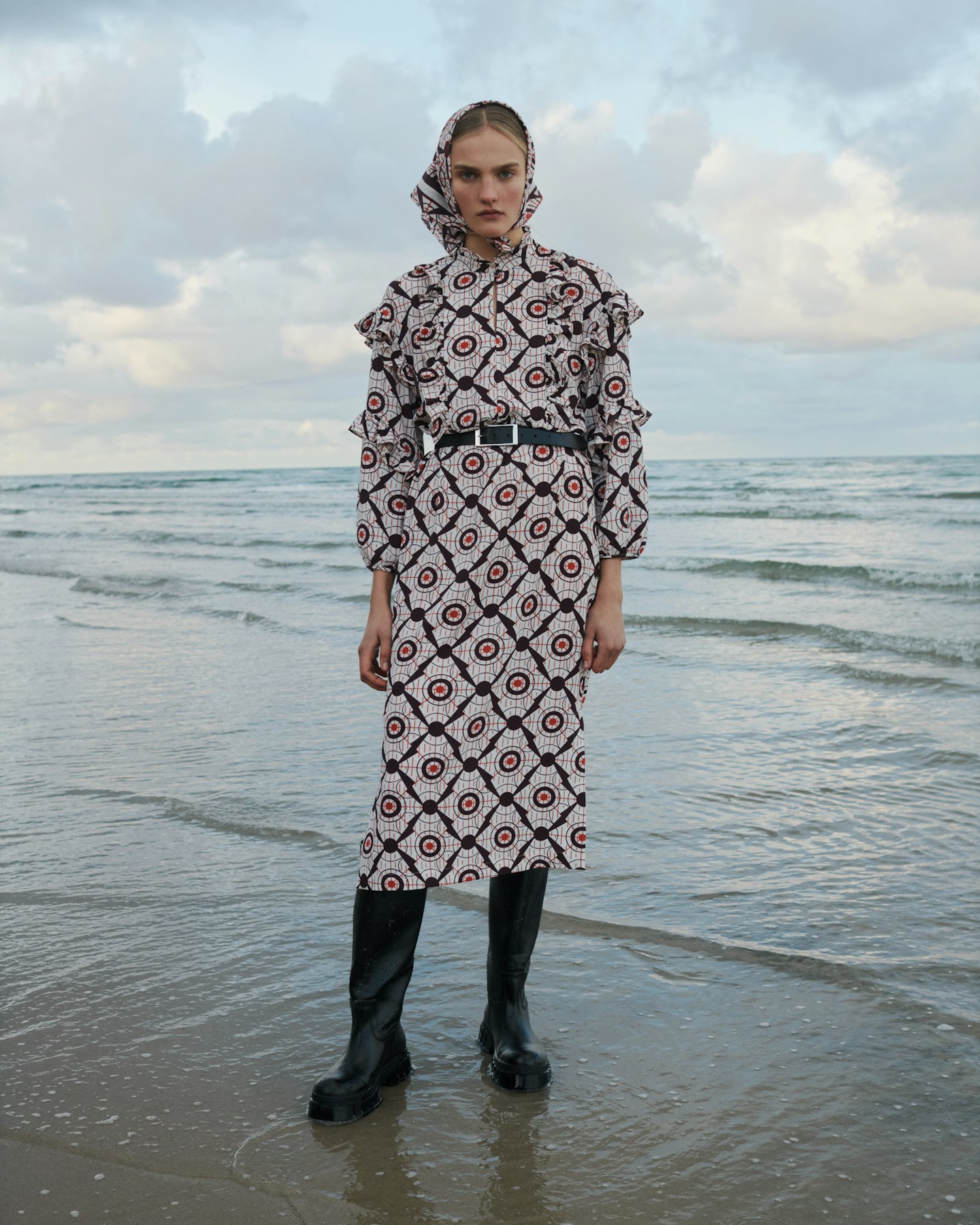 2 of 31
2 of 31Baum Und Pferdgarten, Ahadi Dress, £189
Baum und Pferdgarten's Responsible Edit are made from organic cotton and recycled fabrics to be 'considerate to the planet, and its people'. The full range starts from £49, and doesn't compromise on the Scandi cool that the brand is known for.
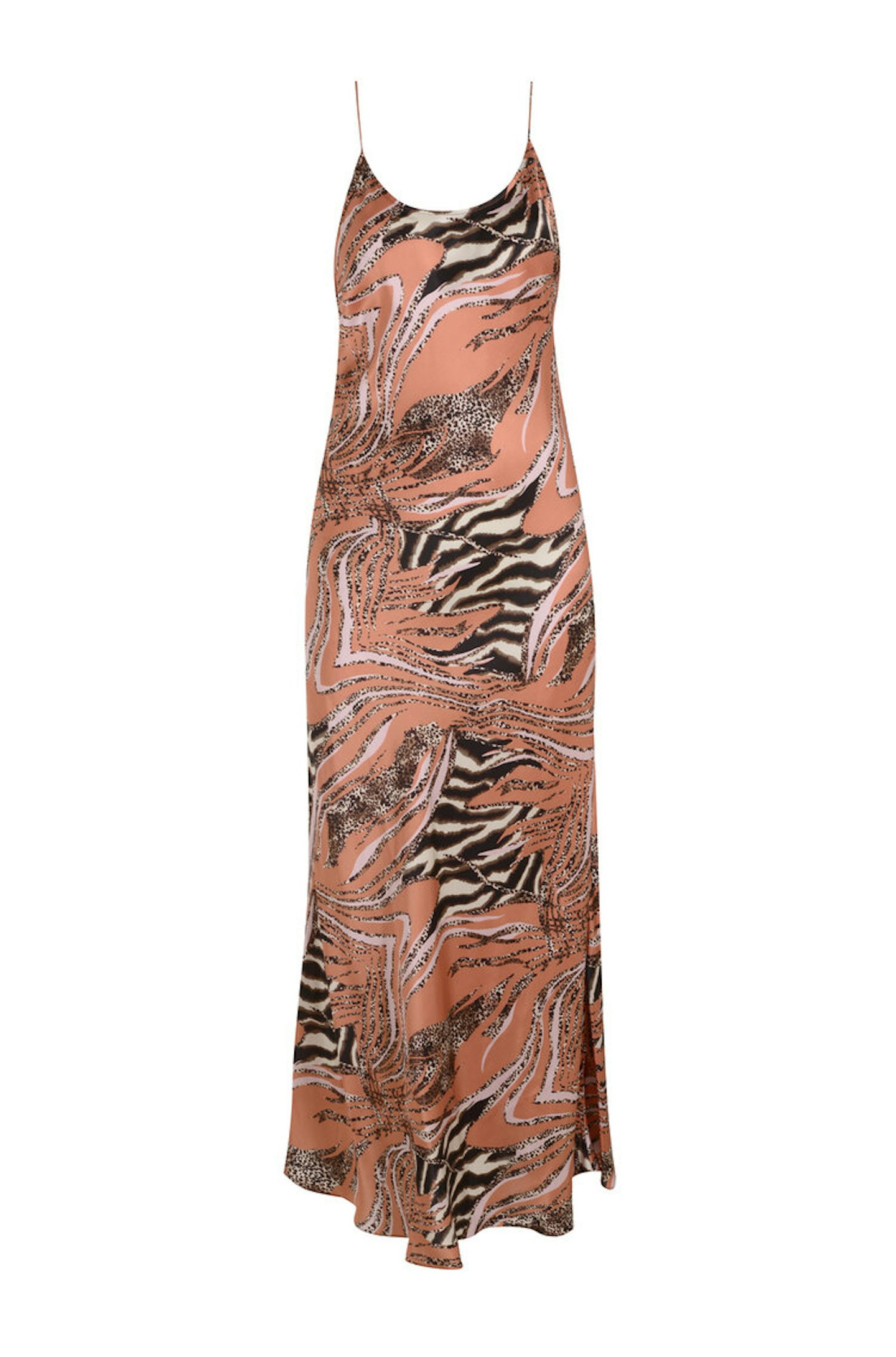 3 of 31
3 of 31Monika The Label, Camille Animal Print Slip Dress, £270
Monika The Label is a UK brand made in North London. They also produce the majority of the collection in organic cotton or Regenesis Light Satin (a material made out of recycled plastic bottles), and use deadstock fabric to create bandanas and scrunchies.
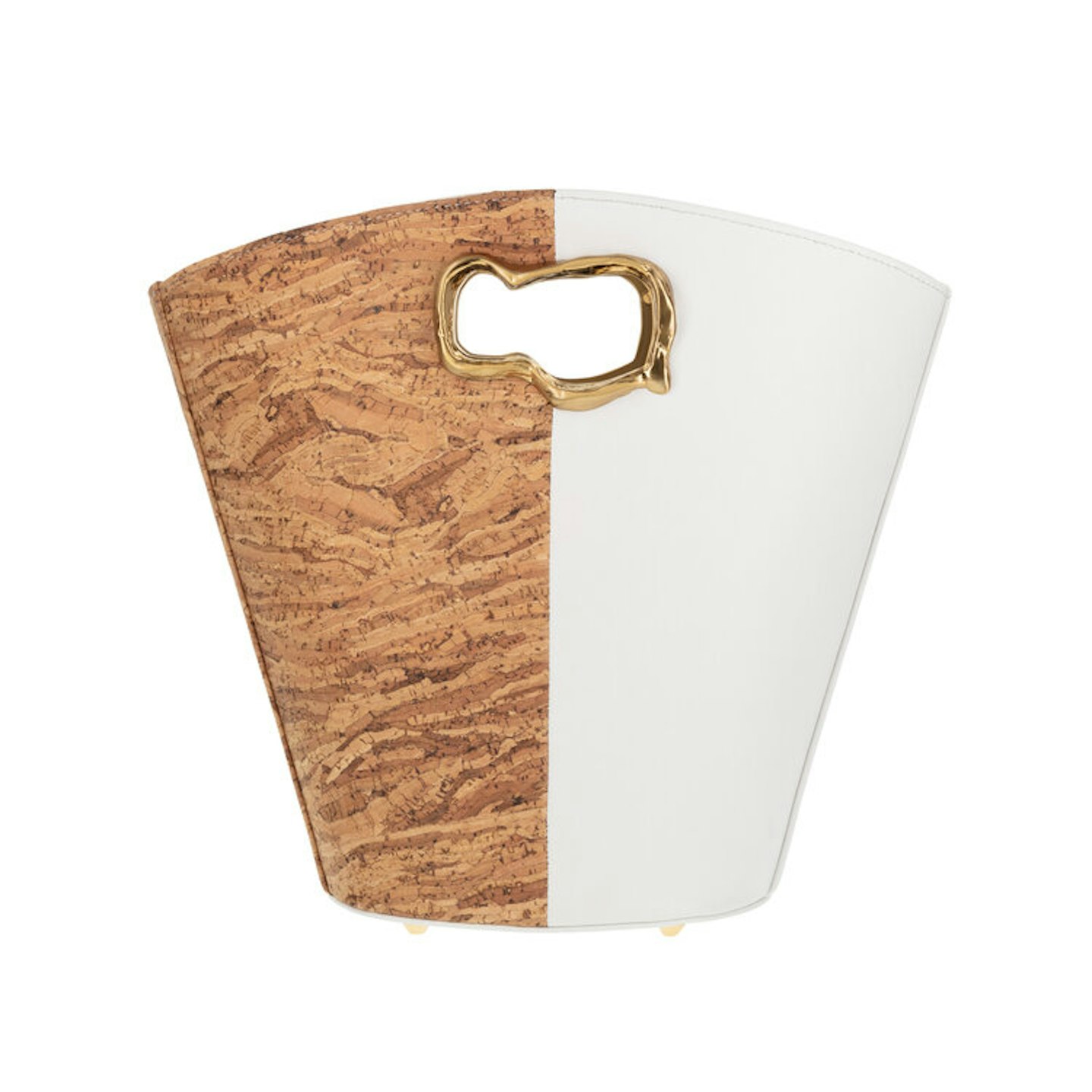 4 of 31
4 of 31Mashu, Cassiopeia Cork and White, £432
Mashu, a London-based handbag label, uses materials such as recycled polyester, the natural fibre pinatex and repurposed wood from old furniture to make top-handle totes and sleek belt bags in its family-run factory of five artisans in Athens.
 5 of 31
5 of 31Shaina Mote, Lucqa Top In Salt, £142.42
This minimalist brand, based in LA, is all about timeless staples with 'made locally' credentials, such as effortless slip dresses and sweaters with added slouch. Tencel, made from eucalyptus trees, rayon, made from wood pulp, and MicroModal, from beechwood trees, are three of its sustainably harvested hero materials.
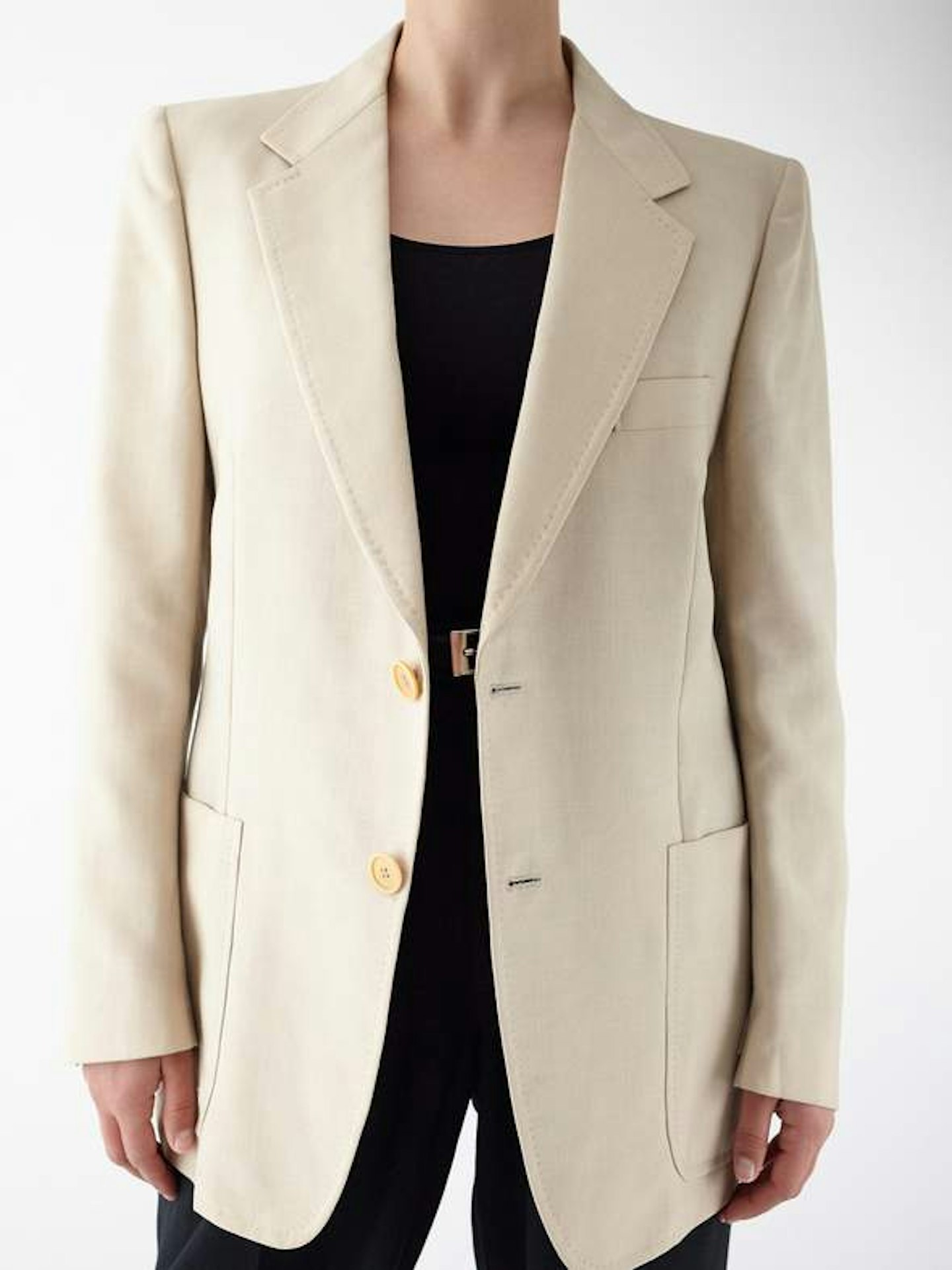 6 of 31
6 of 31The Level Store, Linen Blazer, £69
One of the easiest ways to lower your carbon footprint is to buy second-hand. The Level Store, an online marketplace that aims to promote a circular economy, takes the rummage hassle out of vintage shopping. The edit of classic trenches, tailoring, sweaters and handbags is impressively premium, plus it donates €1 from every order to reforestation projects in Portugal.
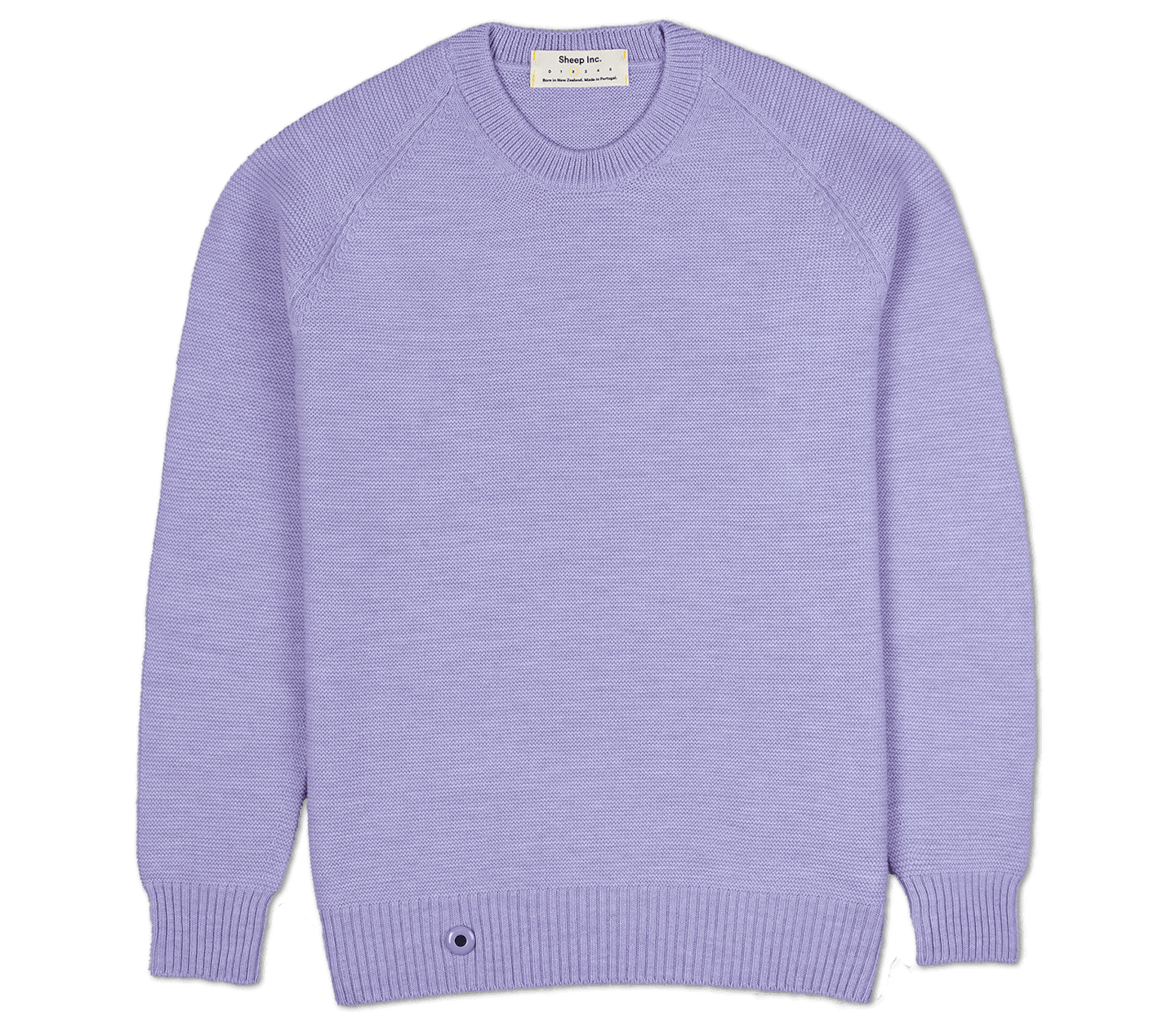 7 of 31
7 of 31Sheep Inc, 001 Medium Knit Lupin Lilac, £160
The clue's in the name. Sheep Inc is a carbon-negative, 100% transparent sweater brand. Each wool jumper comes with a digital tag, meaning you can track its manufacturing journey from New Zealand to your wardrobe. Test out its mantra – 'Strangers will want to pet you' – for yourself.
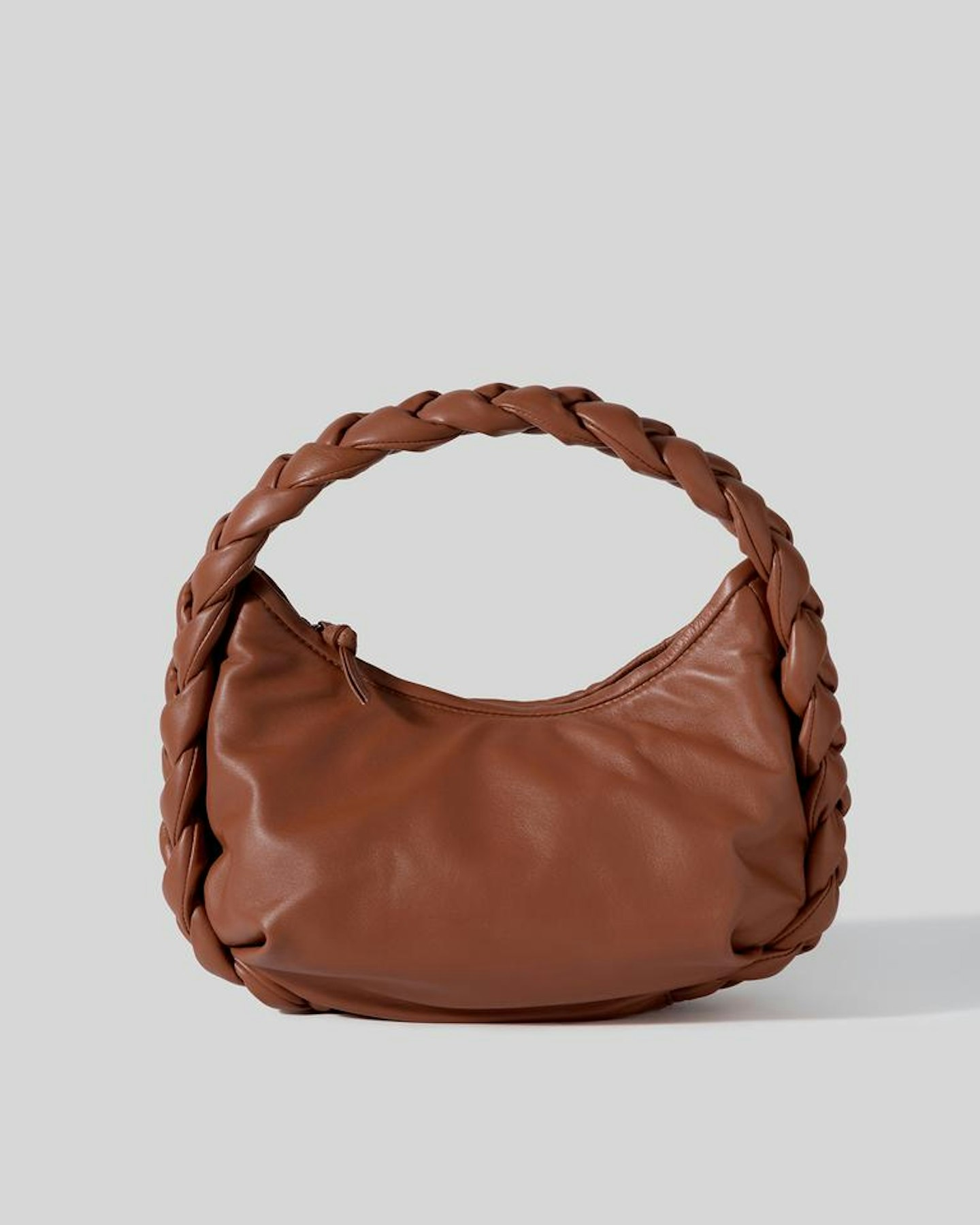 8 of 31
8 of 31Hereu, Plaited Padded-detail Shoulder Bag, £346
Mediterranean Spain, and its legacy of craftsmanship, is the inspiration behind accessories label Hereu. The shoes (flat loafers, espadrilles and lace-ups) and bags (baskets and woven leather cross-bodies) are all designed and produced in Barcelona.
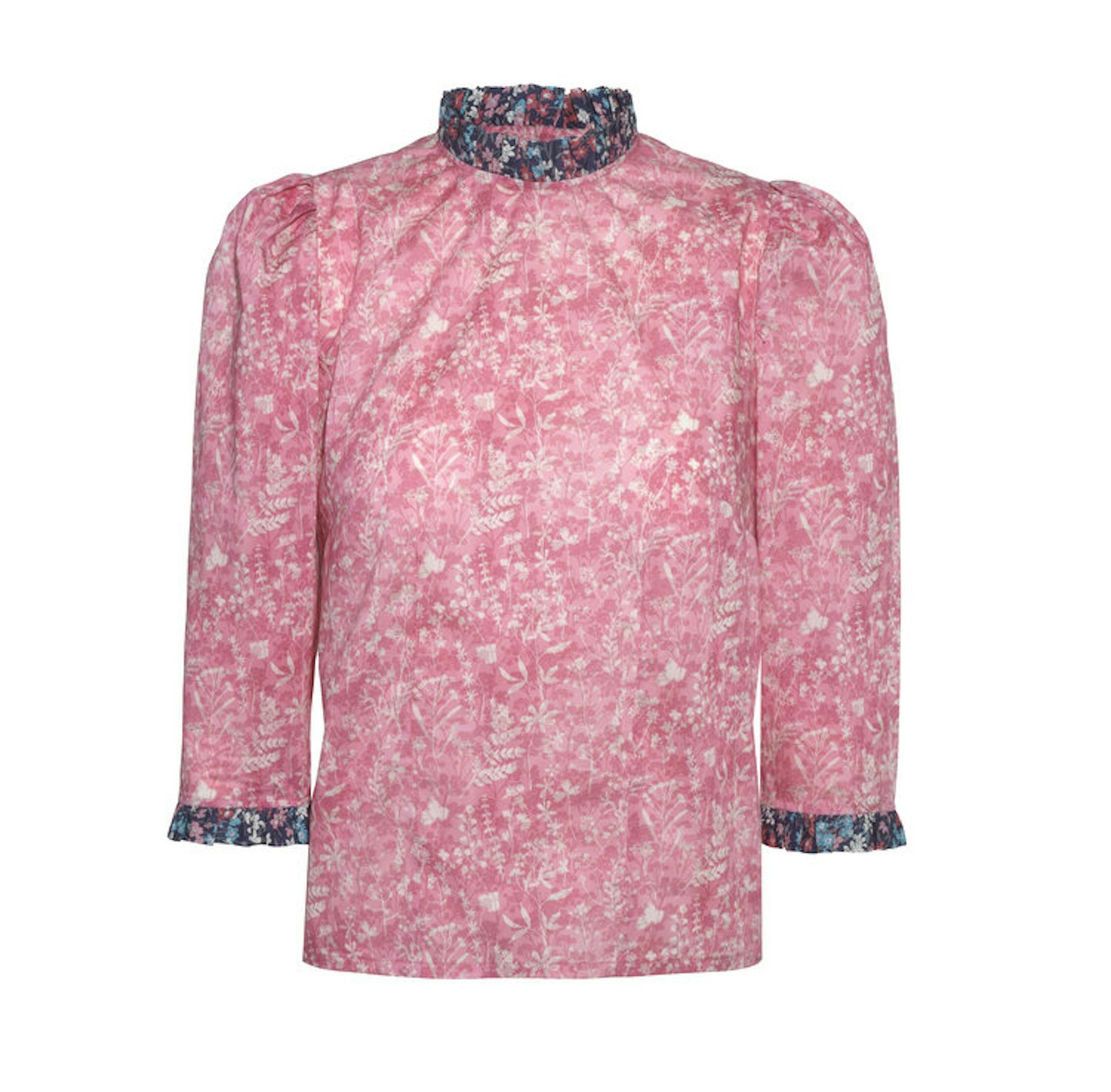 9 of 31
9 of 31O Pioneers, Milly Blouse, £170
If you can't get enough of prairie dresses, you need to know about O Pioneers. Founded in north London, the limited-edition and one-off designs are handmade using deadstock and vintage fabrics. Fun fact: co-founder Clara Francis made the beaded headress Emma Watson wears in Little Women.
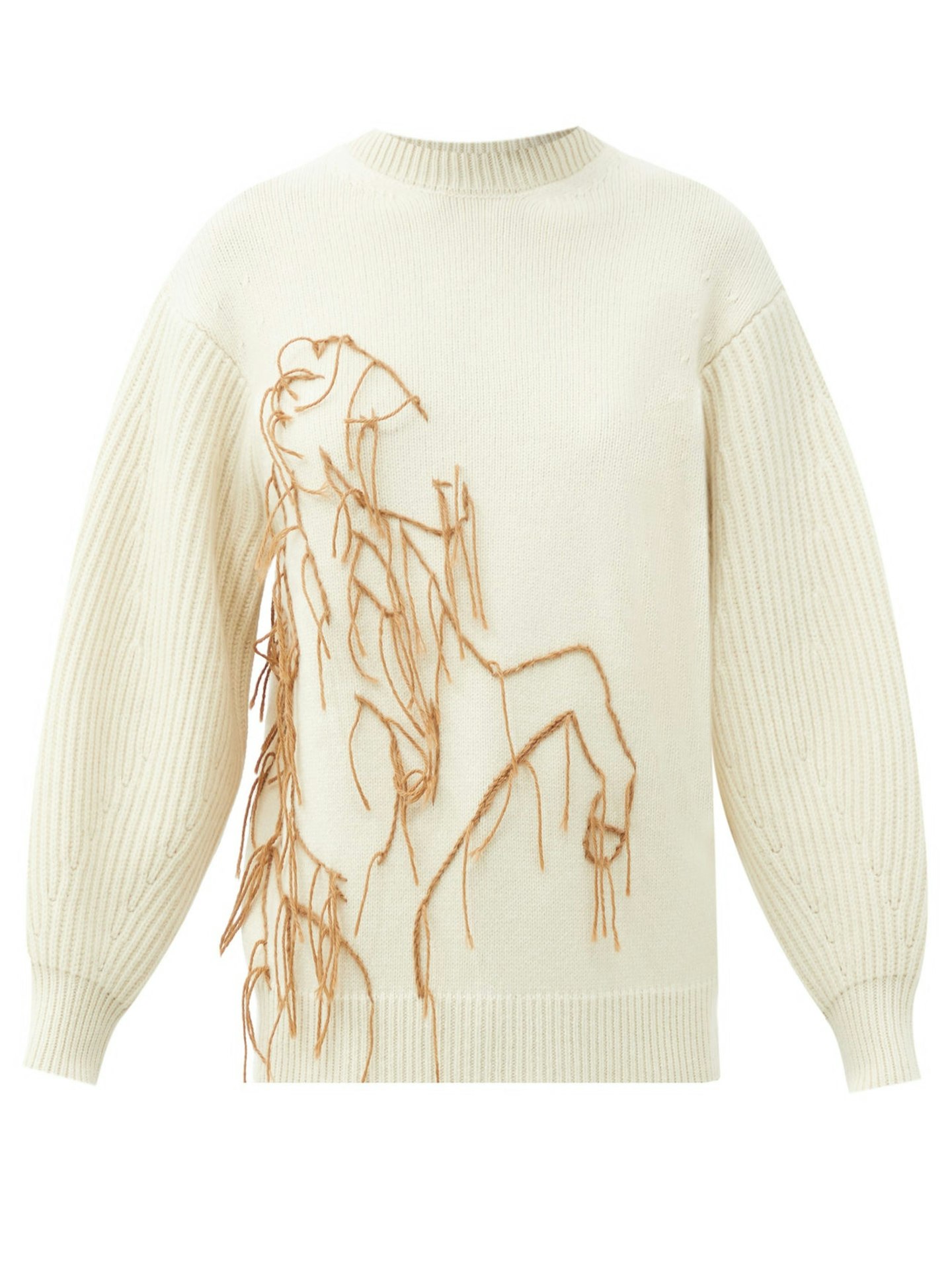 10 of 31
10 of 31Ssōne, Joanie Embroidered Recycled-Cashmere Sweater, £473
Fashion insiders are already falling for Ssōne, the London label that specialises in socially-conscious, environmentally friendly statement pieces, each of which comes with facts about its provenance.
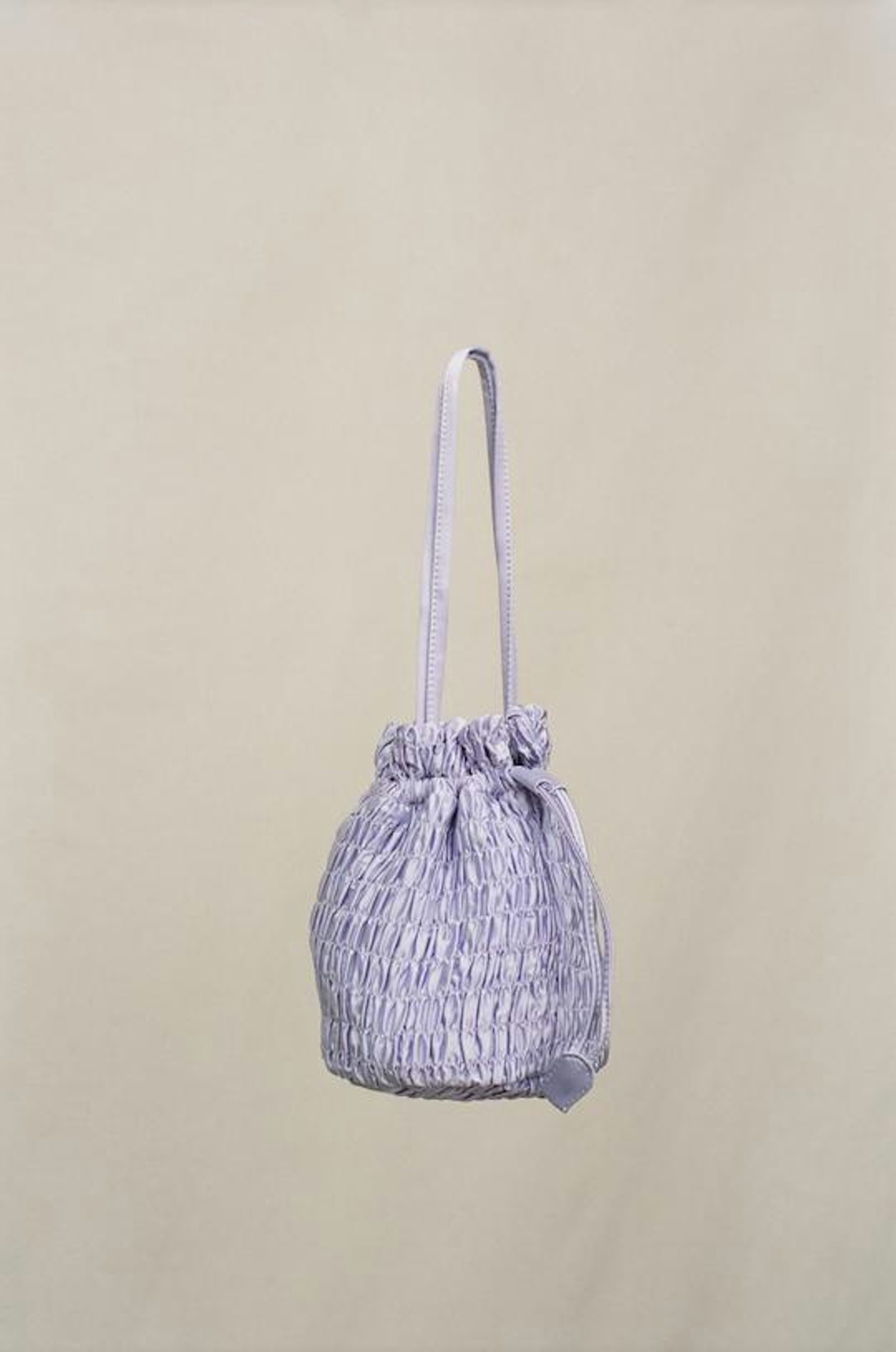 11 of 31
11 of 31Hai, Puff Gina, £122
So there's never any leftover stock that's wasted, Hai's playful scrunchies and bags are produced in small batches (also minimising your chances of unwanted 'twinning'). Silks are coloured with eco-reactive dye (less damaging than regular versions), and its packaging uses zero plastic.
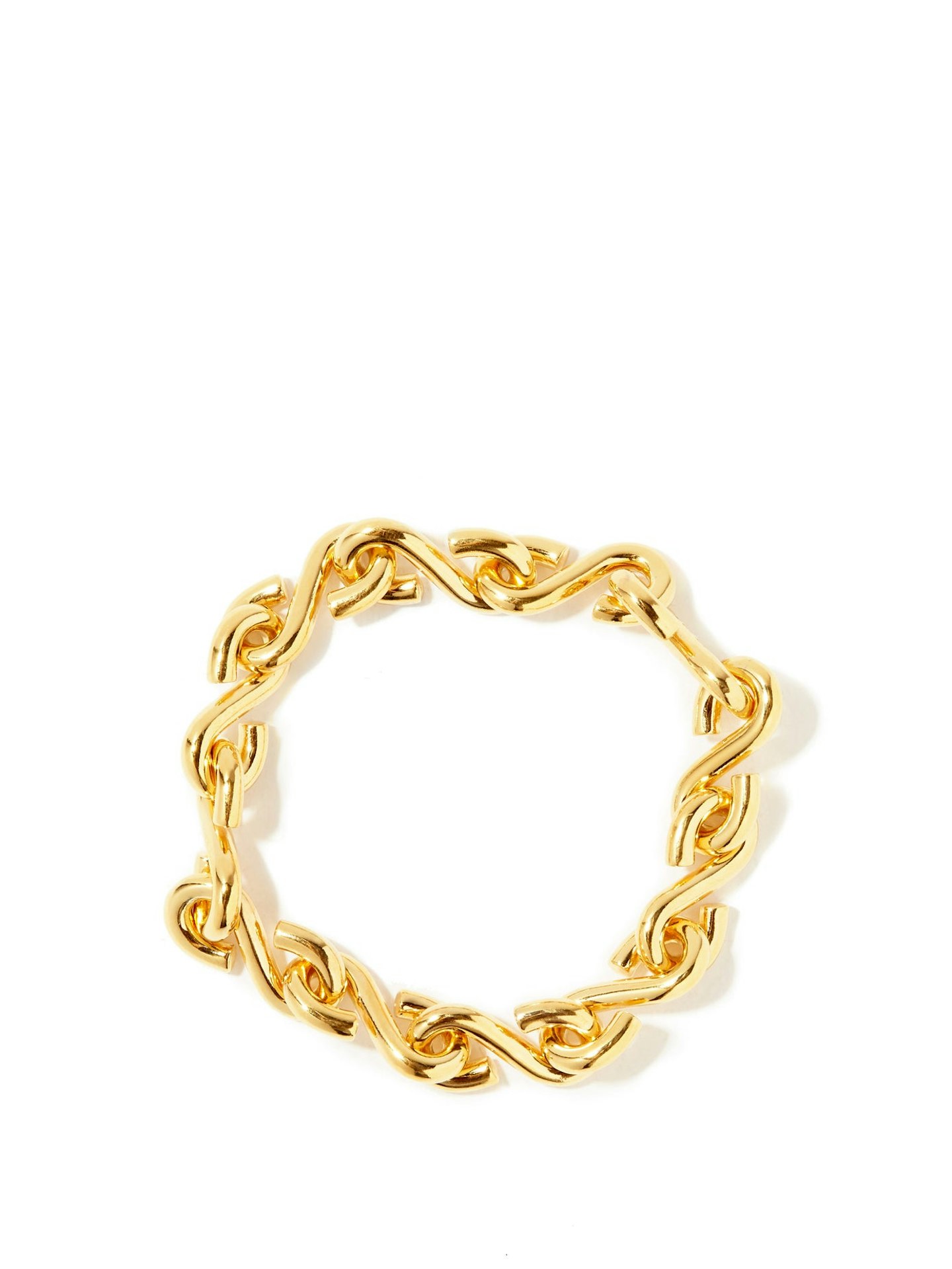 12 of 31
12 of 31All Blues, S-link Gold-Vermeil Bracelet, £500
The weighty chain-link necklace is set to continue its reign as one of the year's most-desired pieces. Join the club the sustainable way with All Blues, which handcrafts its designs in Stockholm from recycled sterling silver. The definition of a forever piece.
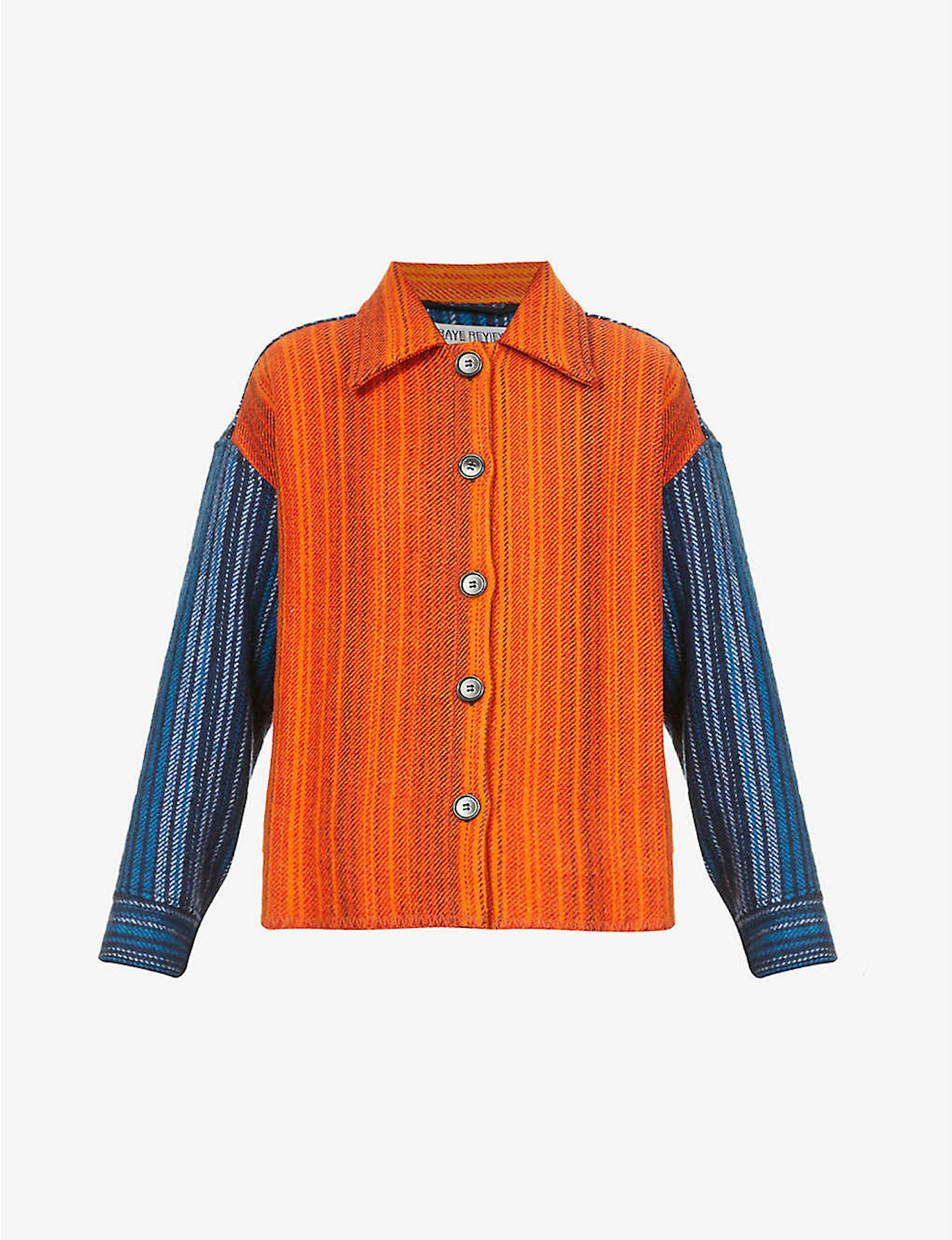 13 of 31
13 of 31Rave Review, Striped Upcycled-Wool Jacket, £715
All of Rave Review's big personality patchwork coats – a firm street-styler favourite – are made using upcycled garments, resolutely proving that second-hand doesn't mean second-best.
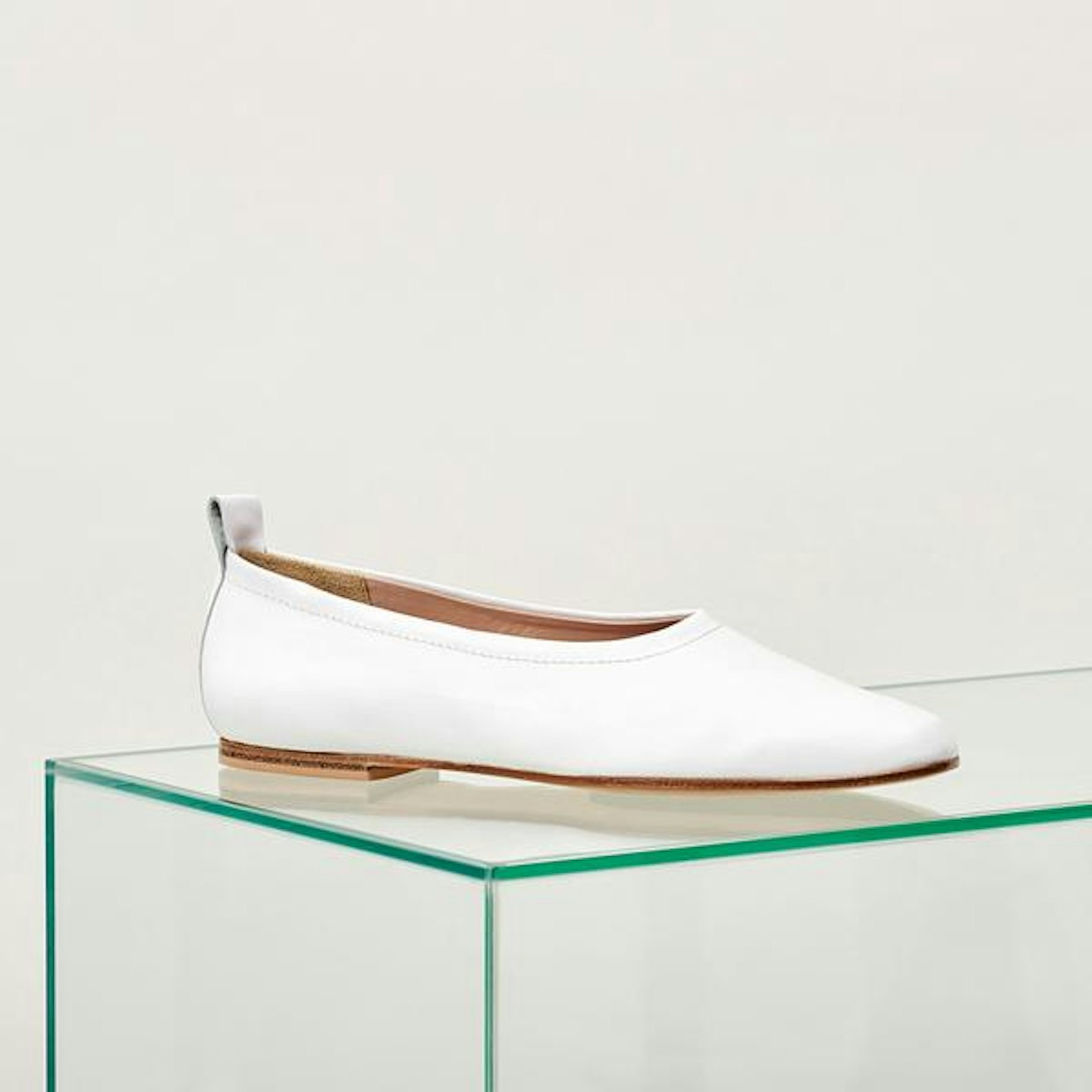 14 of 31
14 of 31ESSĒN, Foundation Flats, £149
Flat mock-croc Chelsea boots, glove-fit ballet pumps and chunky ankle-strap sandals – all of which are big for SS20 – are all part of ESSĒN's pared-back designs. Collections are designed with a small carbon footprint in mind. Its new styles are produced through a pre-order model, so they're only made when ordered, thereby avoiding overproduction.
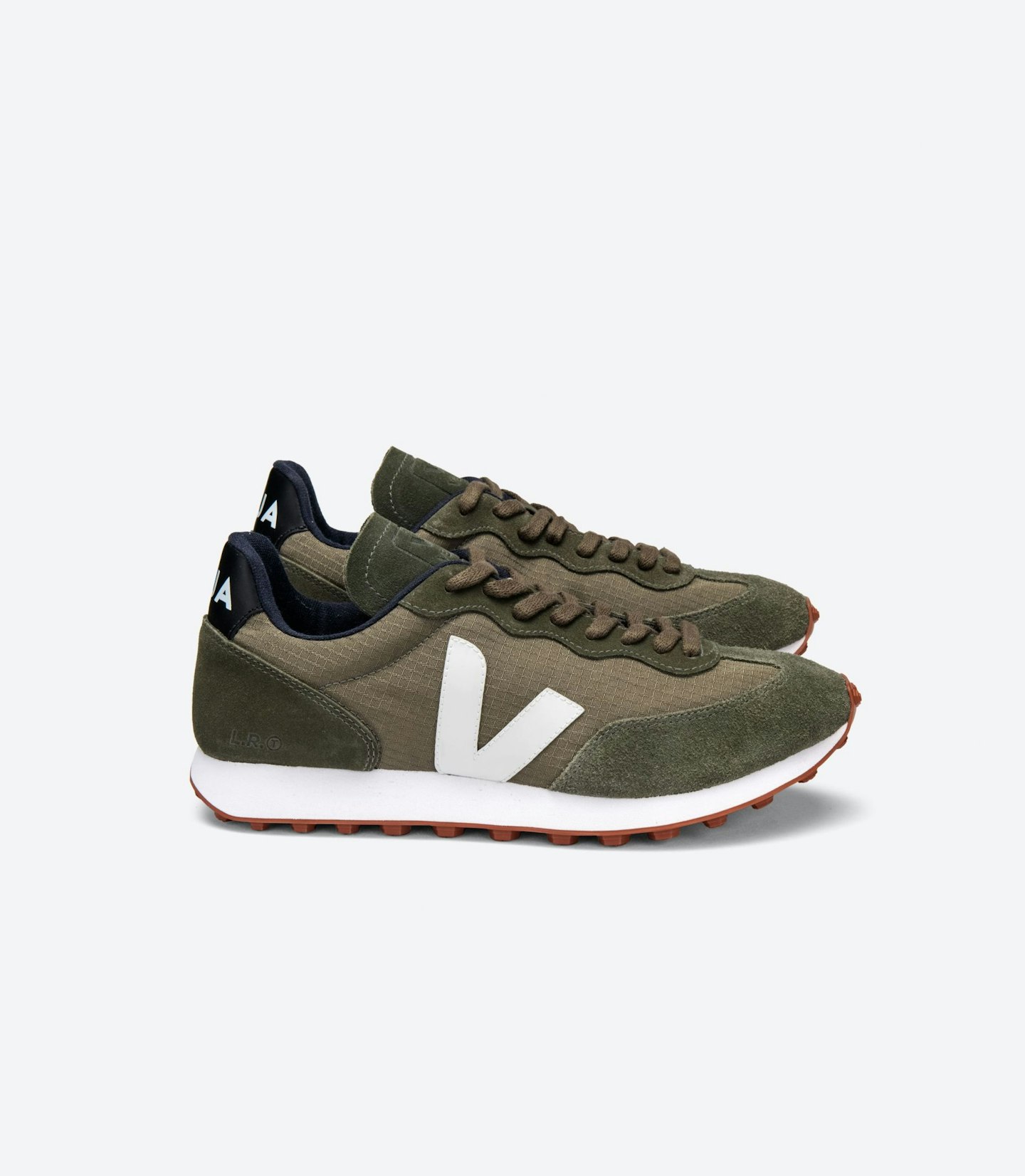 15 of 31
15 of 31Veja, Rio Branca Ripstop Kaki Pearl, £105
The Duchess of Sussex is a fan - and you will be too once you hear the roll call of Veja's sustainable and ethical credentials. Founded in 2005, it buys agro-ecological cotton and rubber directly from family producers in Brazil, signing one to three year contracts to guarantee income, its logistics workers are part of Atelier Sans Frontieres, an organisation promoting the professional integration of people who have been excluded from the labour market, and it's the first trainer brand to use B-mesh, a fabric made entirely from recycled plastic bottles. It has also purchased 195 tons of wild rubber, to preserve 120,000 hectares of the Amazon rainforest, since 2004.
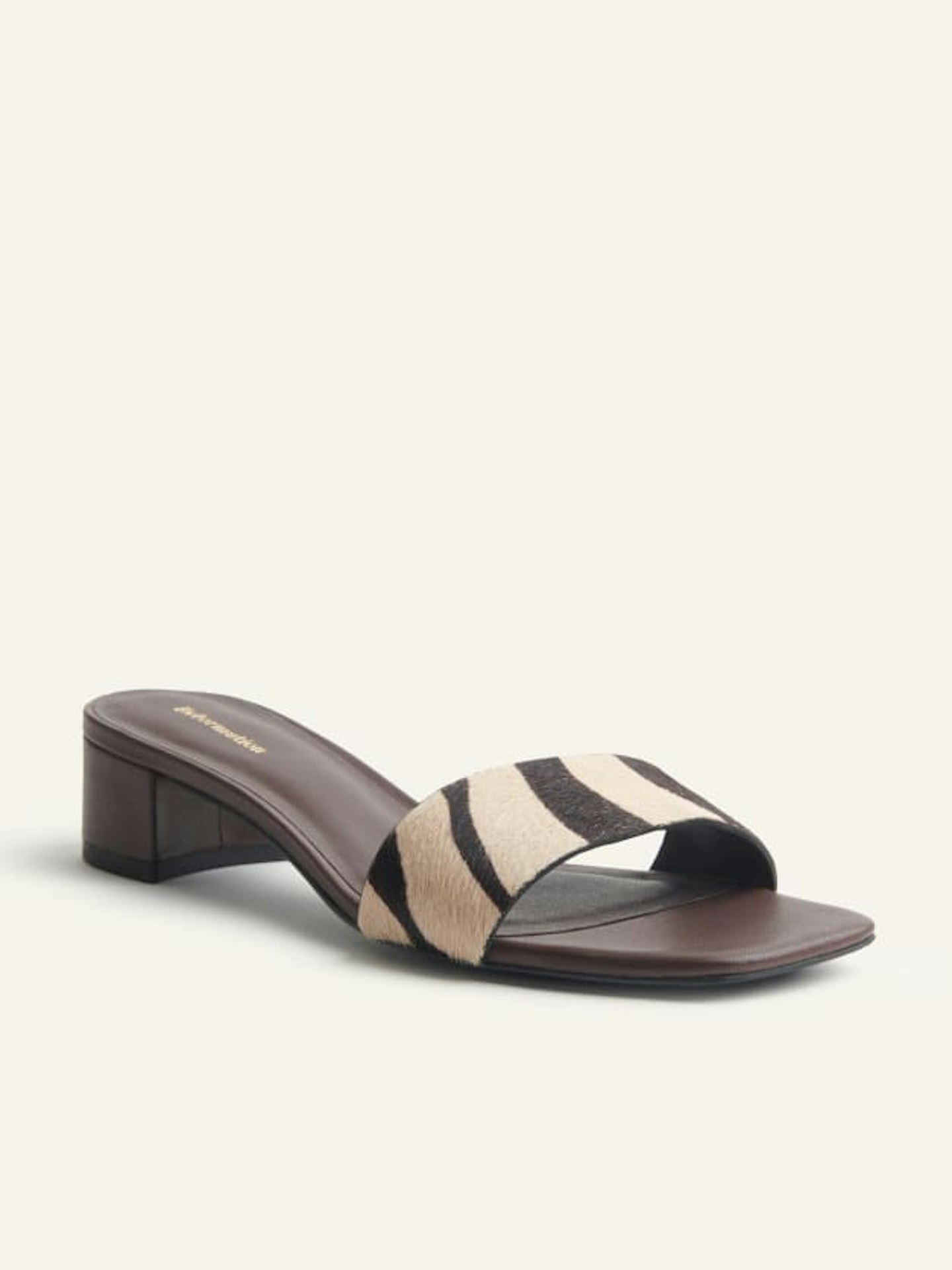 16 of 31
16 of 31Reformation, Mandy Minimal Block Heel Mule, £215
Reformation is as dedicated to sustainability as it is to making Insta hit after Insta hit. Its RefScale tracks its environmental footprint - adding up the pounds of carbon dioxide emitted, gallons of water used and pounds of waste generated - so that the company can then offset those resources. International shipping is now free - and totally offset, naturally.
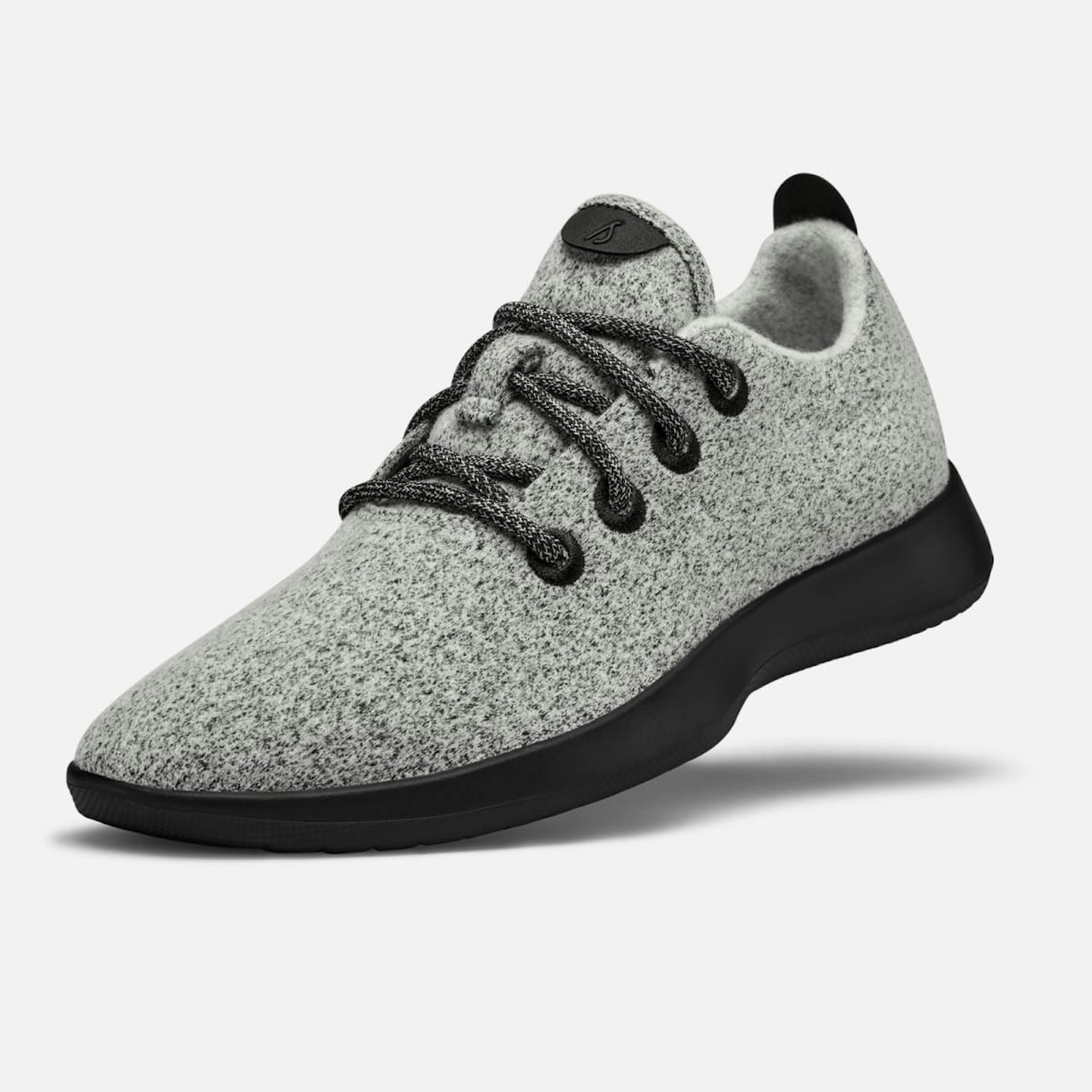 17 of 31
17 of 31Allbirds, Women's Wool Runners, £95
This New Zealand sneaker brand's mantra - 'Light on your feet, easy on the planet,' - tells you all you need to know. The trainers - made from superfine merino wool, processed using 60% less energy than materials used in synthetic shoes, tencel lyocell, which uses 95% less water than cotton and sugarcane, a renewable resource transformed into Allbirds's SweetFoam soles - really do feel like clouds for your feet. It also takes its carbon footprint seriously - good news for a shoe label - and is a 100% carbon-neutral business.
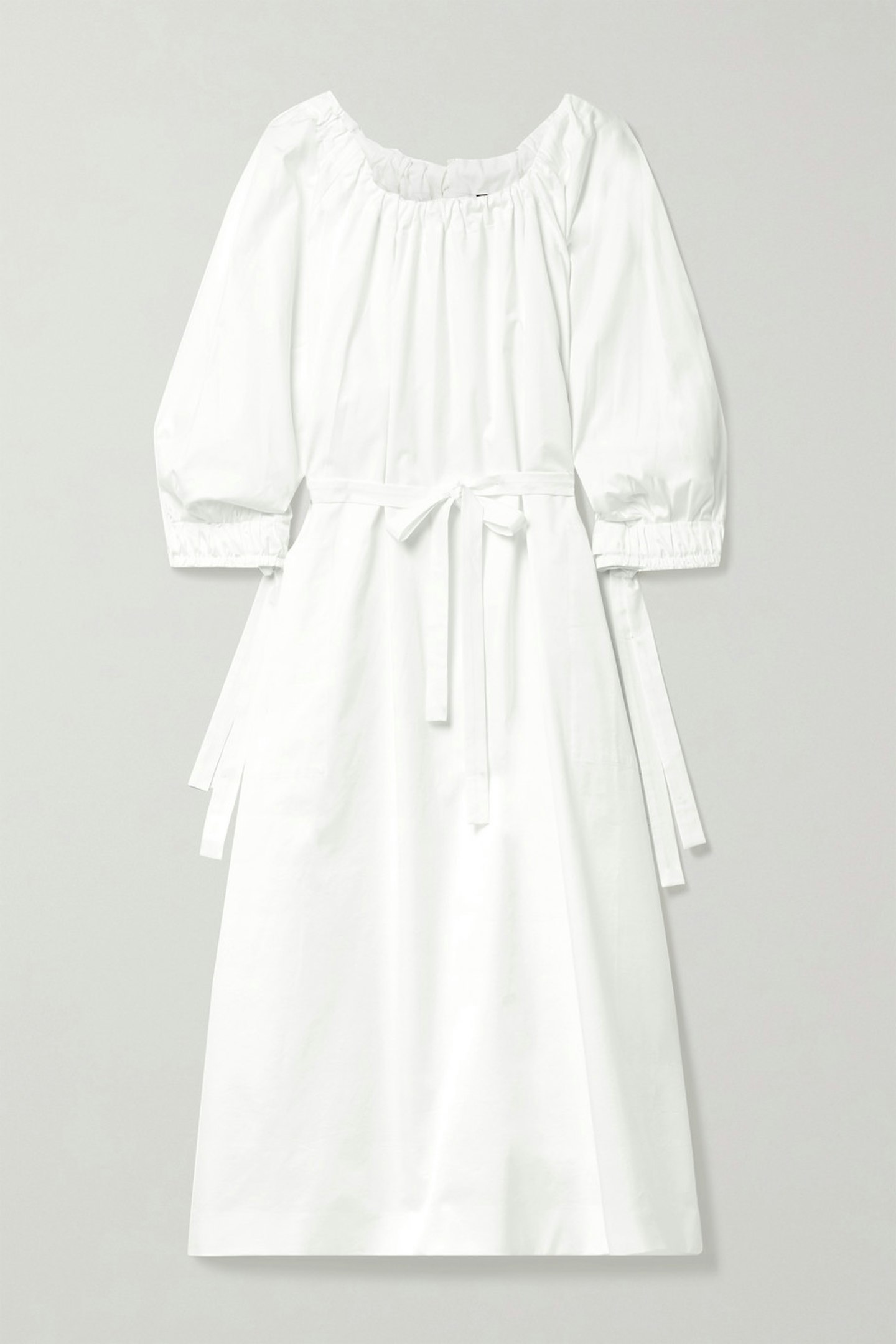 18 of 31
18 of 31Mother Of Pearl, Zariah Belted Ruched Cotton-Blend Poplin Midi Dress, £175
Mother of Pearl isn't just committed to making sustainable clothes, it also cares deeply about its company culture reflecting its ethos. It has a vegetarian lunch scheme for staff, with produce sourced from local producers via Farmdrop, the office itself runs on green energy and it even uses toilet paper from Who Gives A Crap, a charity who donates 50% of its profits to improving sanitation in the developing world.
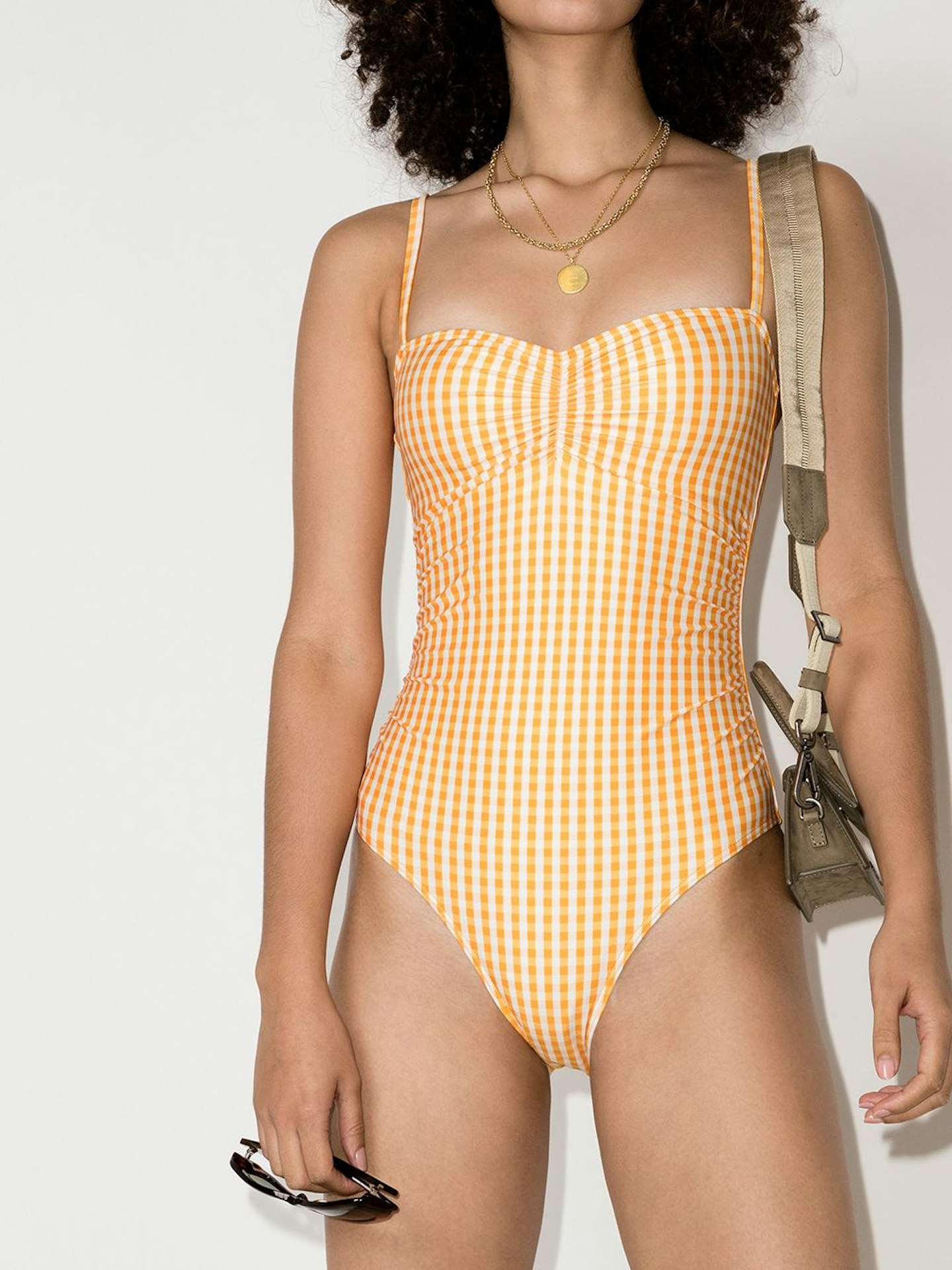 19 of 31
19 of 31Peony, Gingham Check Print Swimsuit, £155
This Aussie brand has prettily printed bikinis and swimsuits made largely from Econyl, nylon that has been regenerated from abandoned fishing nets and nylon waste. All its fabrications also meet the Oeko-Tex Standard 100, the highest certifiable standard for ensuring responsible use of chemicals during the fabric construction.
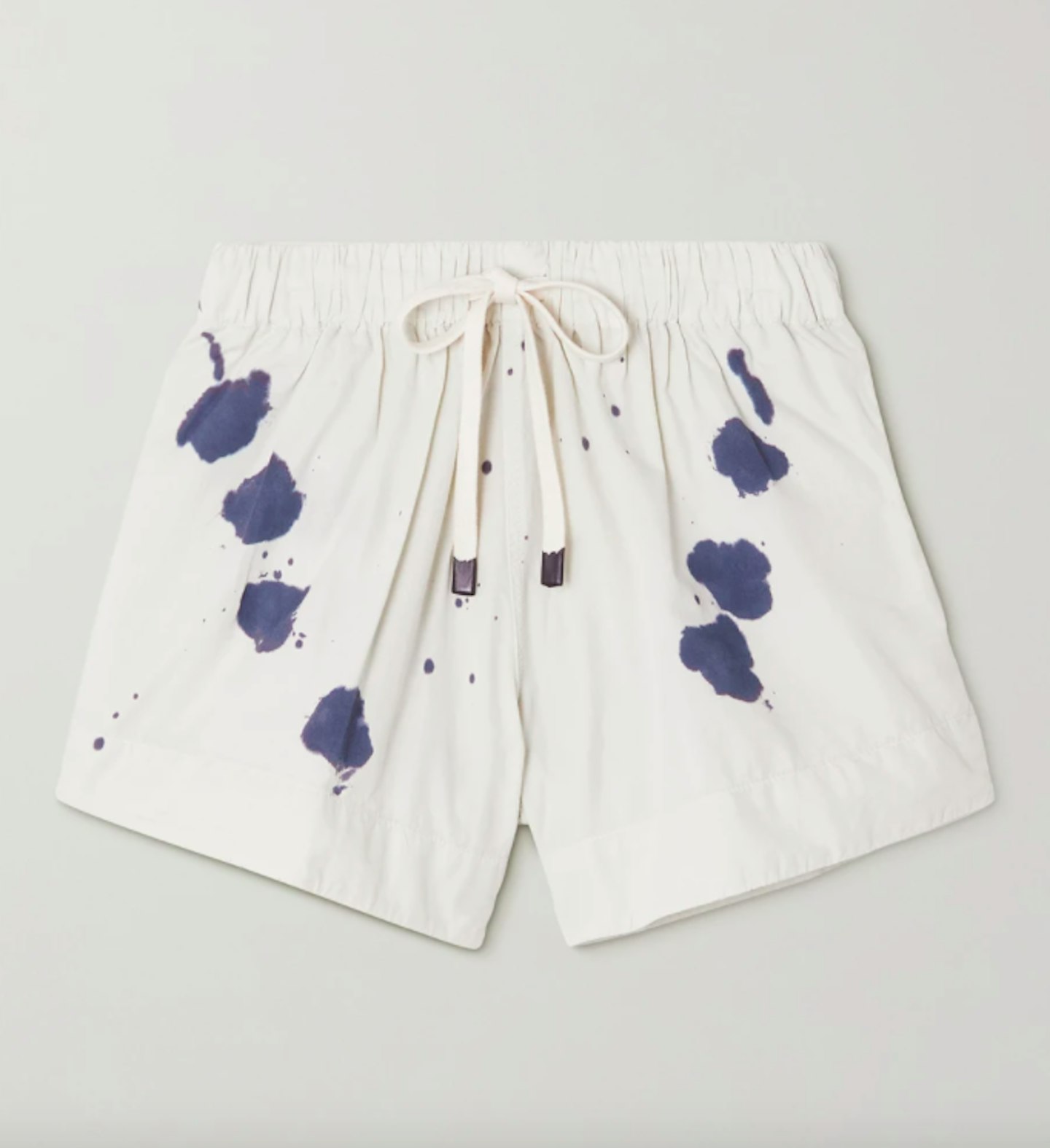 20 of 31
20 of 31Bassike, Printed Cotton-Twill Shorts, £87.50
The Aussie brand Bassike, founded in 2006, already has some impressive stats under its (pleasingly minimal) belt. Its organic cotton jersey was developed and is made in Melbourne with 95% certified-organic fibres, which biodegrade and are produced without pesticides, it donates past season samples to a company that turns them into cleaning rags and its paper and cardboard packaging is 100% recyclable and biodegradable.
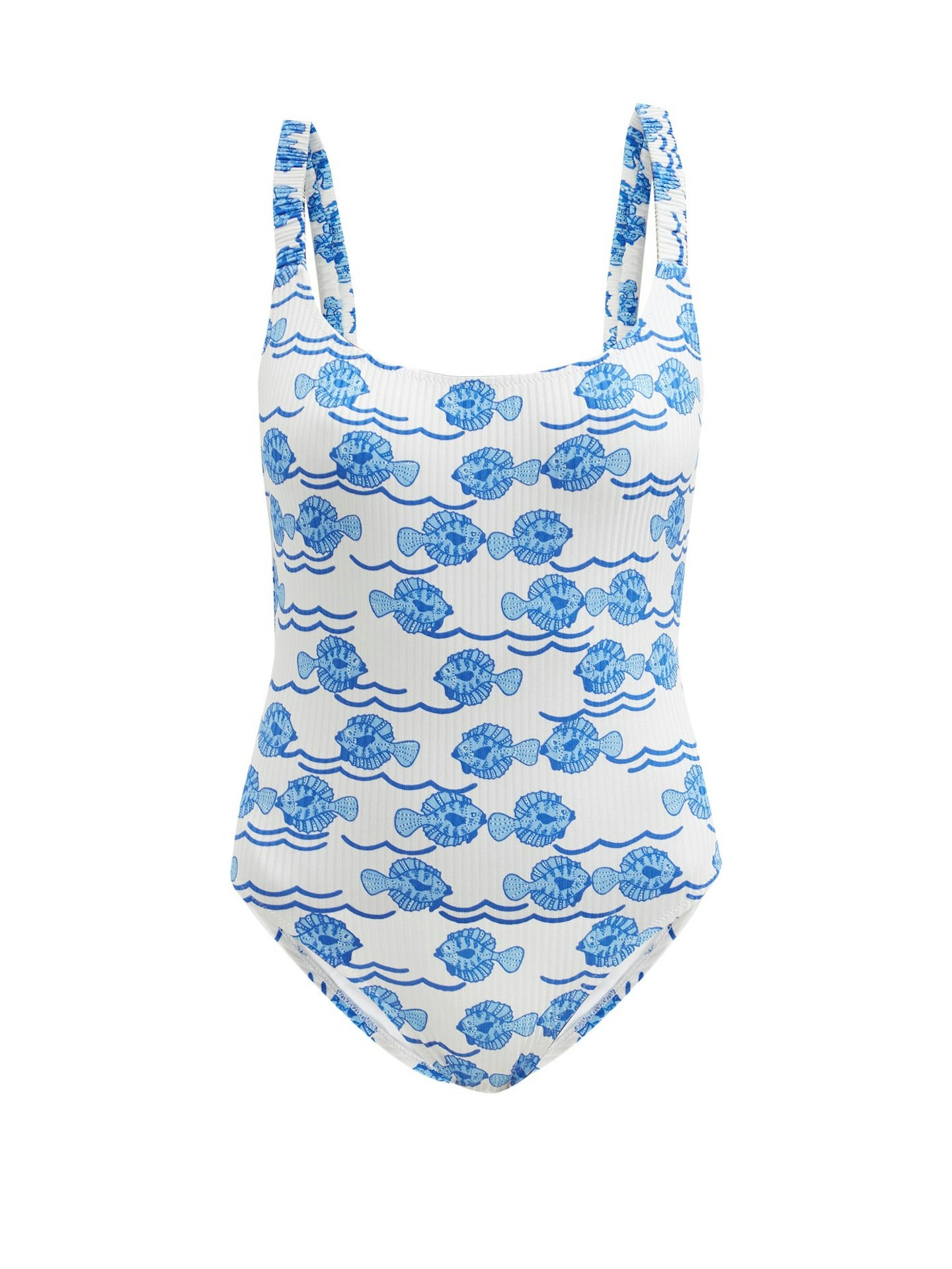 21 of 31
21 of 31Fisch, Select Fish-Print Low-Back Swimsuit, £195
Fisch's eco-credentials are as on-point as its scoop-backed, squared-necked cossies. They're made out of Italian Econyl, a 100% regenerated nylon fibre created from fishing nets and other types of nylon waste, which is woven in Lombardy, Italy.
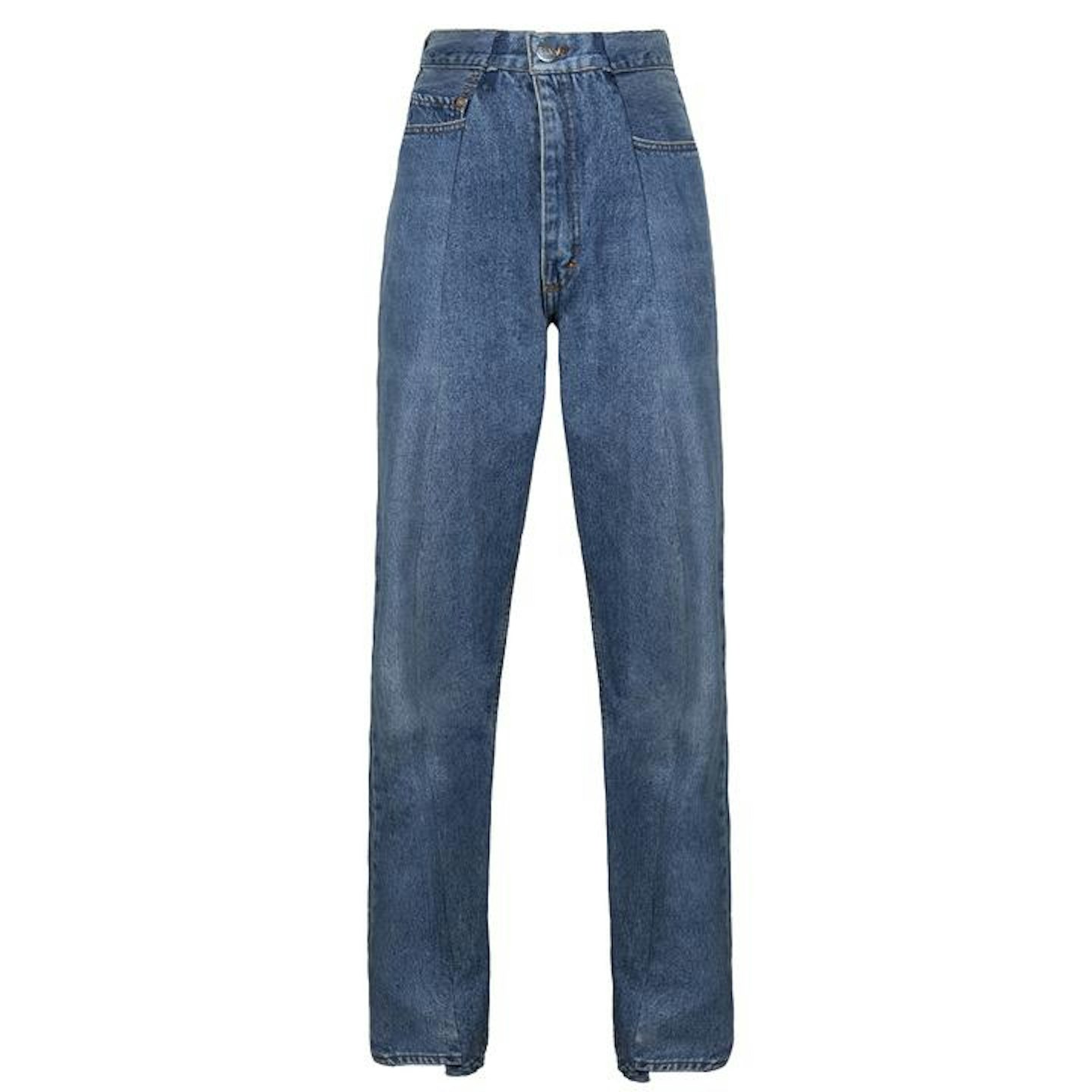 22 of 31
22 of 31E.L.V, Mid Blue Match Boyfriend Jean, £285
The denim sector of the fashion and textiles industry is one of the worst culprits in terms of sustainability because of the amount of water and chemicals involved in the dyeing and production processes. Each pair of zero-waste E.L.V jeans, however, is made from two pairs of discarded jeans that would otherwise end up in landfill and are produced in a five-mile radius between Dalston and Walthamstow.
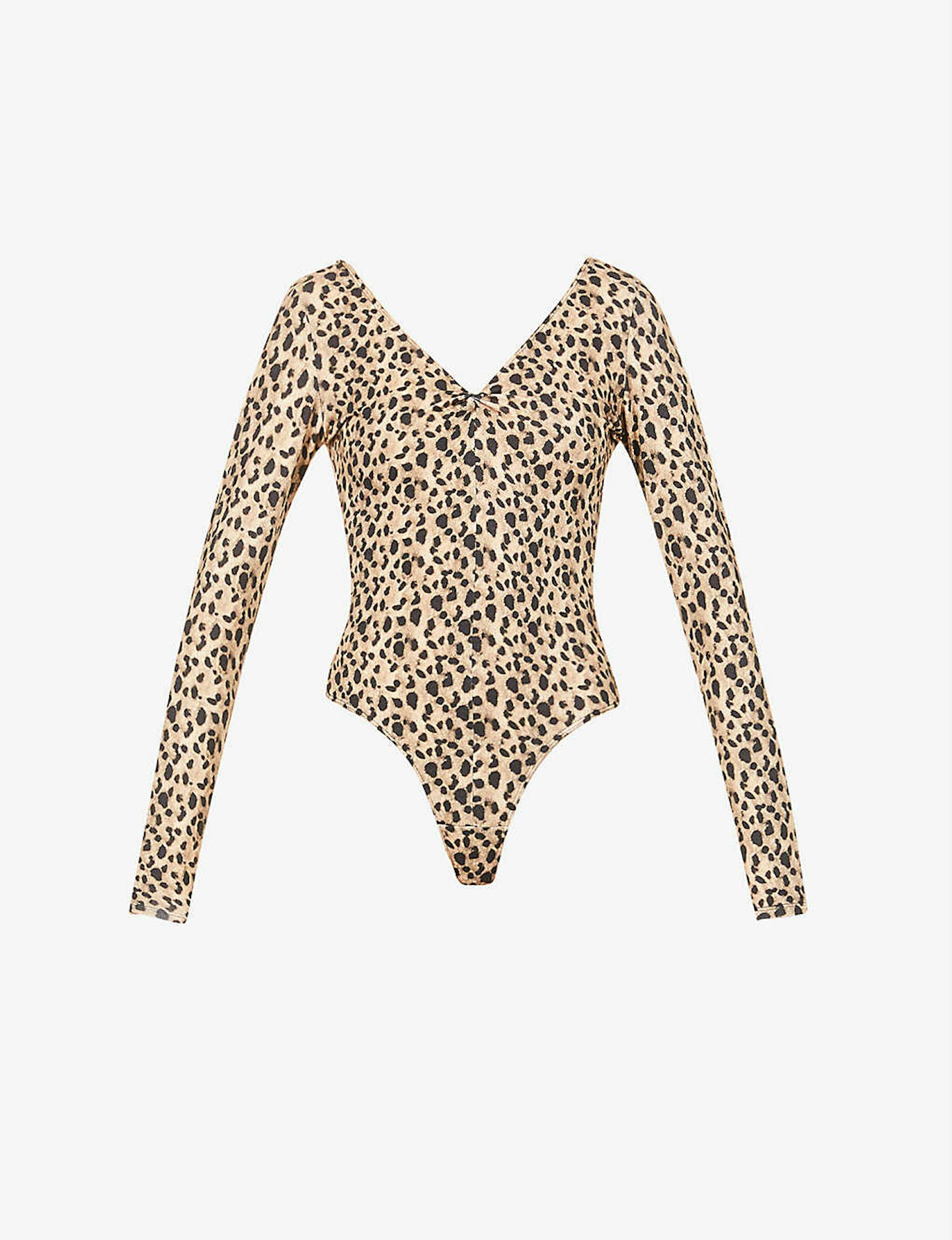 23 of 31
23 of 31RE/DONE, Wonder Woman 1984 Cheetah-Print Stretch-Jersey Body, £155
As its name suggests, the LA-based Re/Done is all about making something new out of something old. That 'something old' is previously worn Levi's jeans that are hand-picked and hand-cut in limited quantities. The result is the perfect straight jeans, bell bottoms and ankle crops.
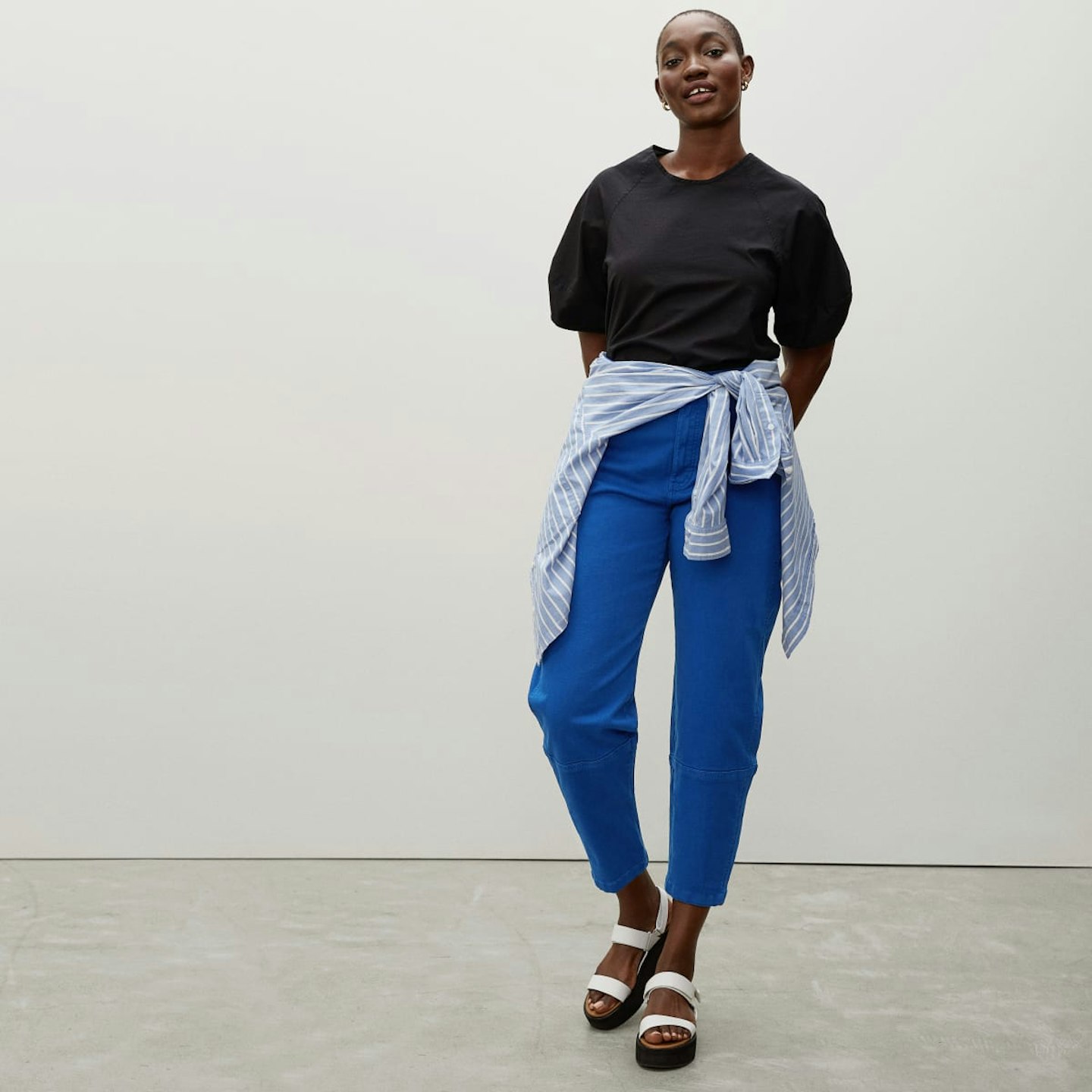 24 of 31
24 of 31Everlane, The Utility Barrel Pant, £71
Everlane, the San Francisco-based start-up that proves sustainable clothes don't have to cost the earth, has a simple mission statement: 'radial transparency'. It has extensive information about each of its ethical factories online - from the loafer factory in Brescia, Italy, to the knitting factory in Fujian, China - and lists where every single garment was made, and from what materials, in the product information.
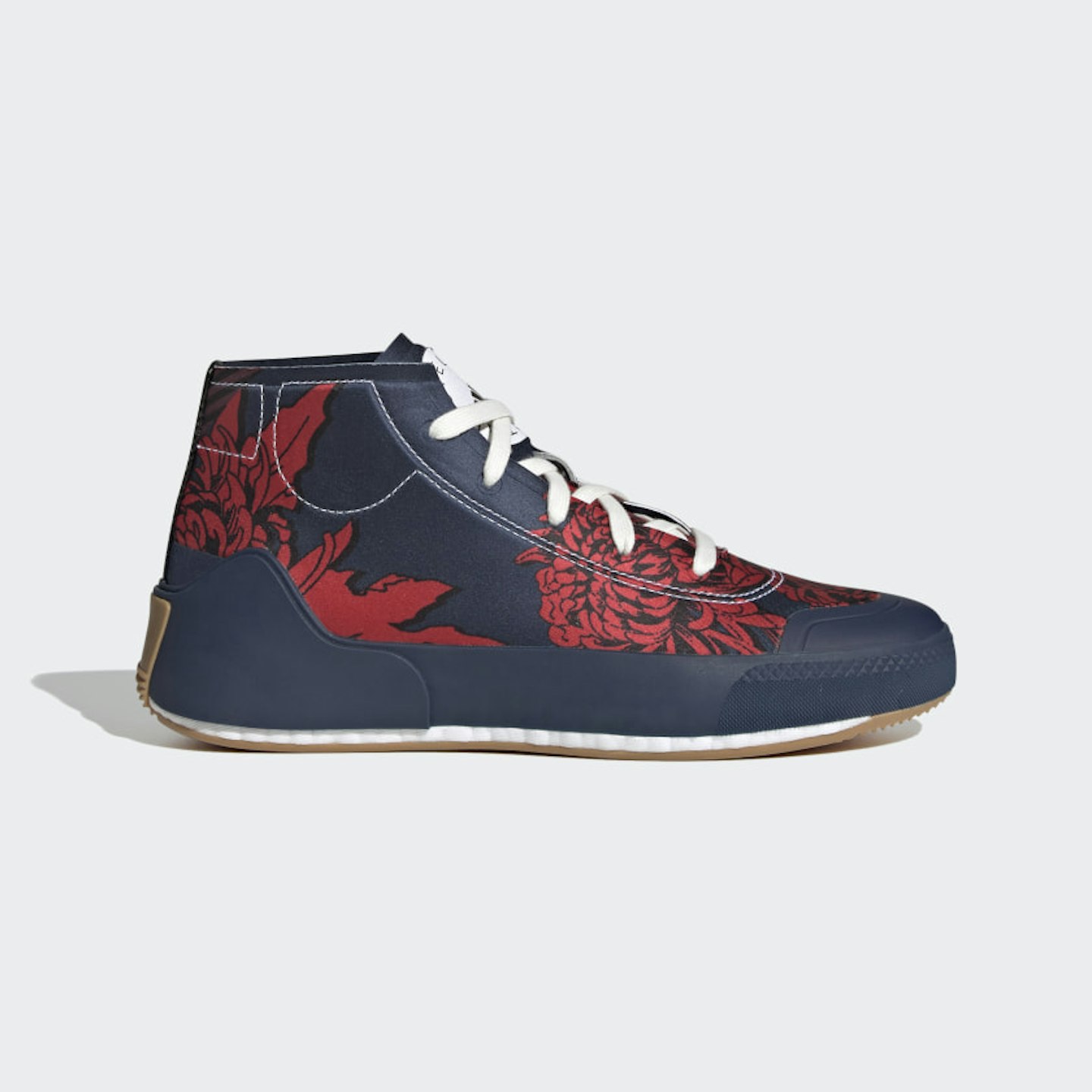 25 of 31
25 of 31Adidas By Stella McCartney, Treino Mid-Cut Print Shoes, £170
No luxury label has made bigger waves in the sustainable fashion market than Stella McCartney. Some of her most innovative experiments under the adidas by Stella McCartney umbrella involve the 'Infinite Hoodie' - 100% recyclable and created with advanced textile innovation company Evrnu from garment waste - and the biodegradable 'Biofabric Tennis Dress', made in partnership with Bolt Threads, a company specialising in bioengineered sustainable fabrics and fibres. While neither was put into production, both prototypes prove that closed loop clothing is not only possible, but desirable.
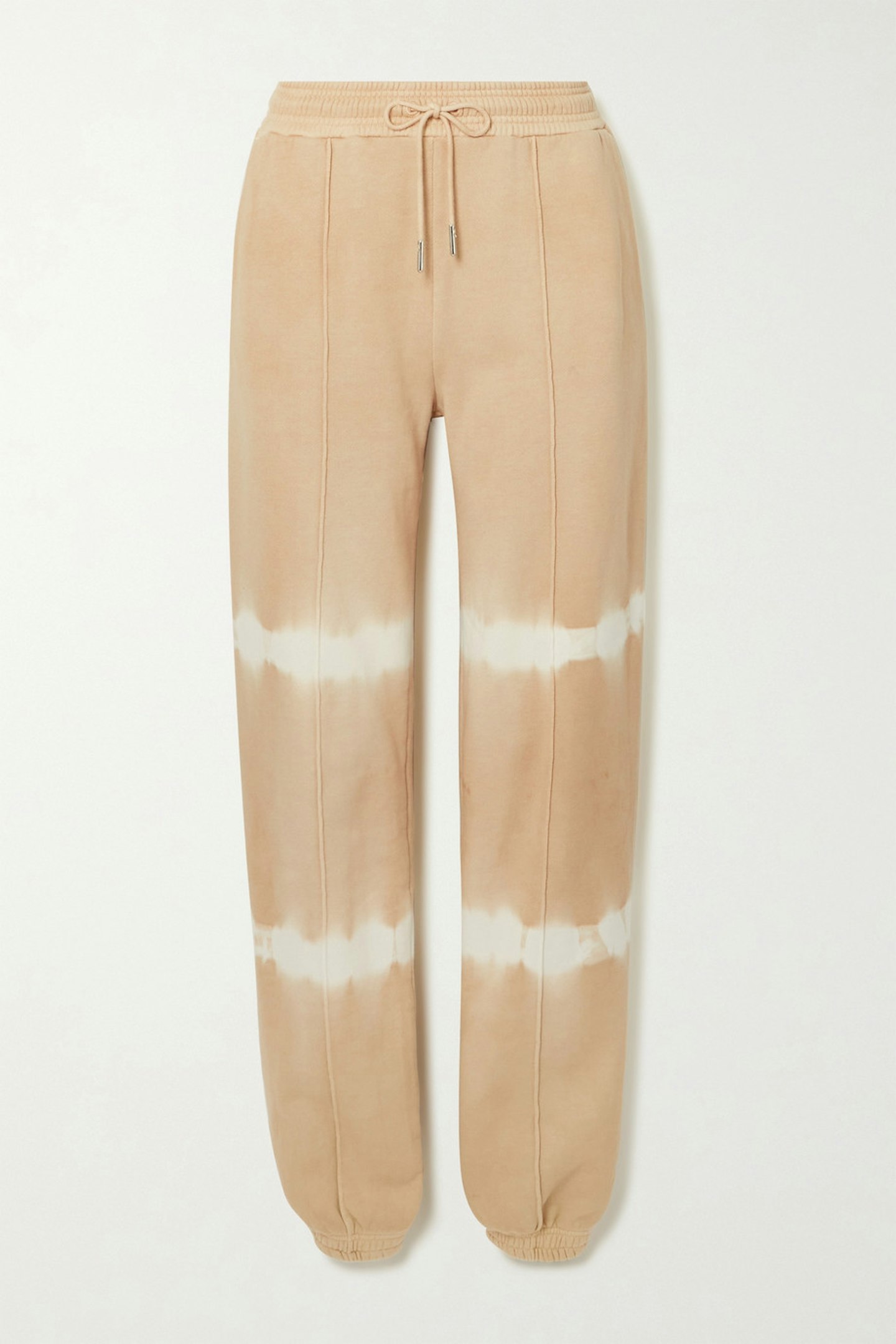 26 of 31
26 of 31Ninety Percent, Tie-Dyed Organic Cotton-Jersey Track Pants, £91
Ninety Percent does exactly what it says on the tin, donating 90% of its profits, and has a platform on its website that allows customers to vote for their chosen cause after making a purchase. Its materials are strictly sourced from reputable suppliers, and features a lot of tencel, a fabric made from renewable wood pulp in a closed loop system.
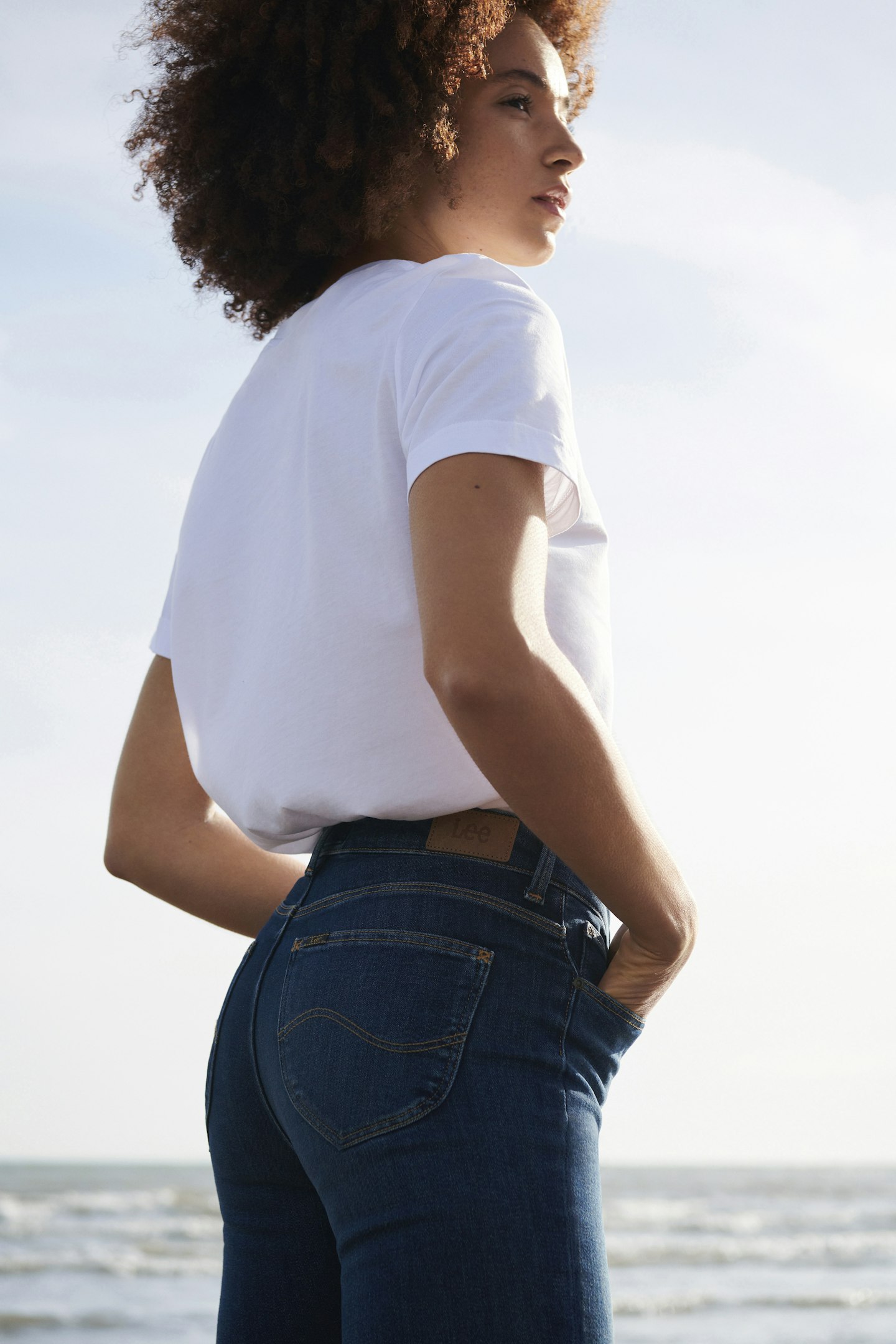 27 of 31
27 of 31Lee, Breese in Dark Joni, £52.50
Every season, Lee find new ways to create with lower impact on the planet, whether it be reduced water, less waste, or using organic fibres. The brand's 'For a World That Works' programme employs multiple innovative techniques and initiatives to make a blue planet greener. This includes recycled fibres, Indigood foam dyeing, Crystal Clear dyeing, organic fibres, recycled hardware, biodegradable back patches and more.
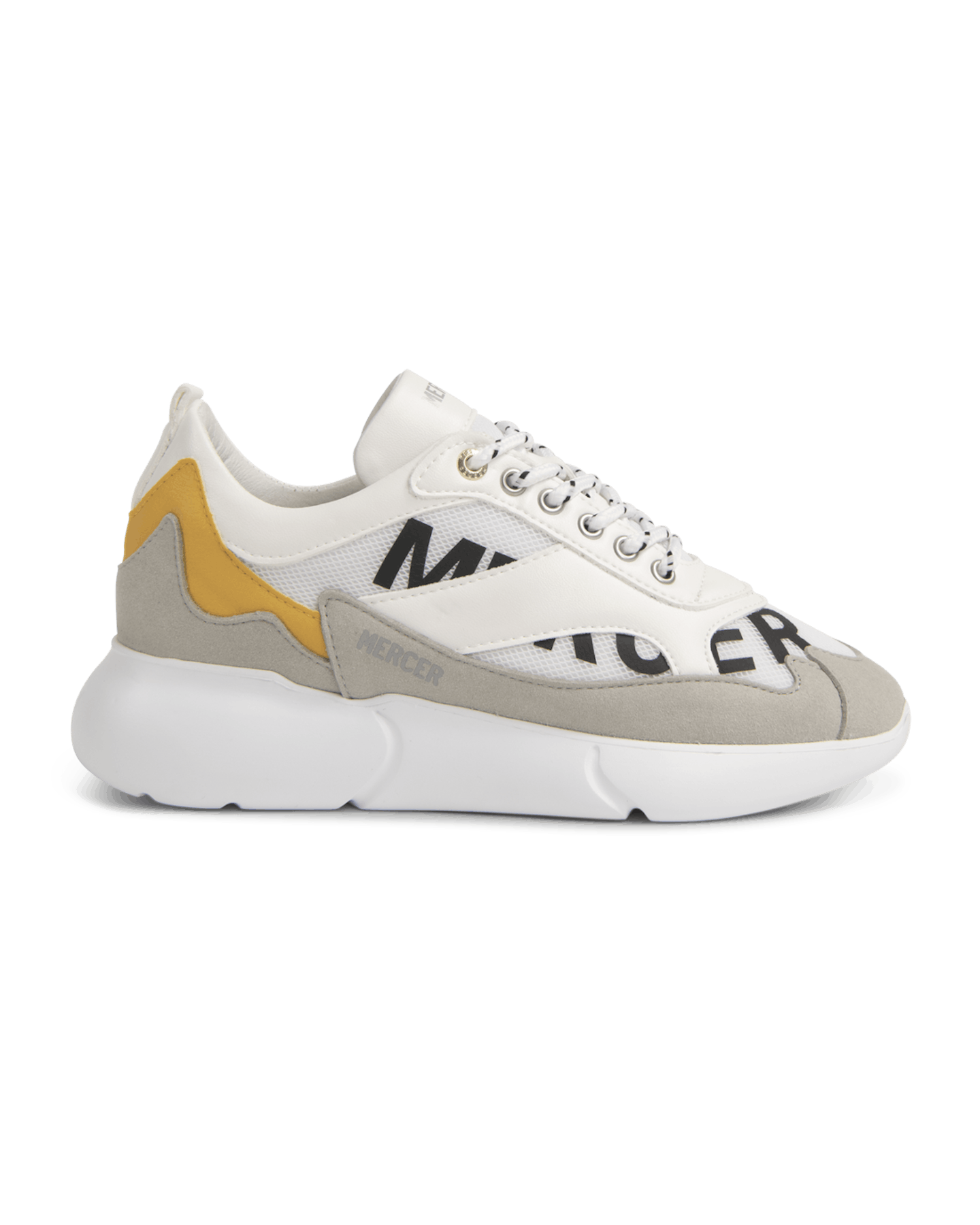 28 of 31
28 of 31Mercer, W3RD Vegan Wine Sneaker, £225
Dutch sneaker brand Mercer has been a pioneer in sustainability for nearly eight years. Aiming to change the average shoppers perception of sustainable and vegan fashion as cool and contemporary and 'not all socks and sandals', they produced the first-ever sneaker made from pineapple 'leather', and more recently wine leather, cactus leather, and soles from algae and more.
 29 of 31
29 of 31WEAR DEADSTOCK, Dickies Lagrange Peach Hoodie, £49.99
WEAR DEADSTOCK is a small family run business passionate about sustainability and providing quality deadstock pieces. Deadstock is a term used to describe an item which is no longer in manufacture so all of their pieces are exclusive and limited.
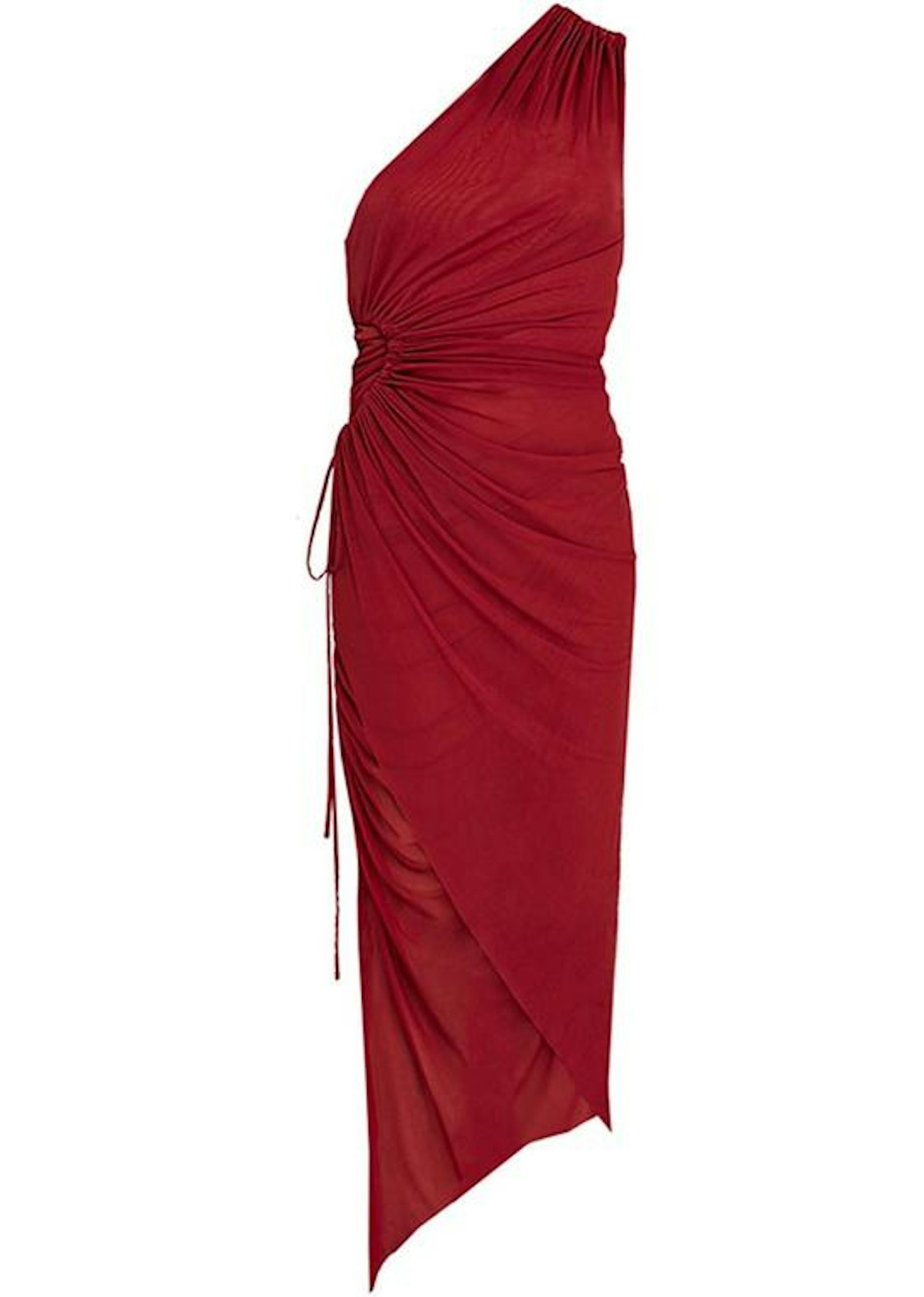 30 of 31
30 of 31SlowCo, D THE BRAND, Red Tulle Midi Dress, £227
SlowCo are a multi-brand slow fashion retail platform, specialising in sustainability and inclusivity. The brand believes in a "less but better" philosophy, and has created a space where everyone is represented.
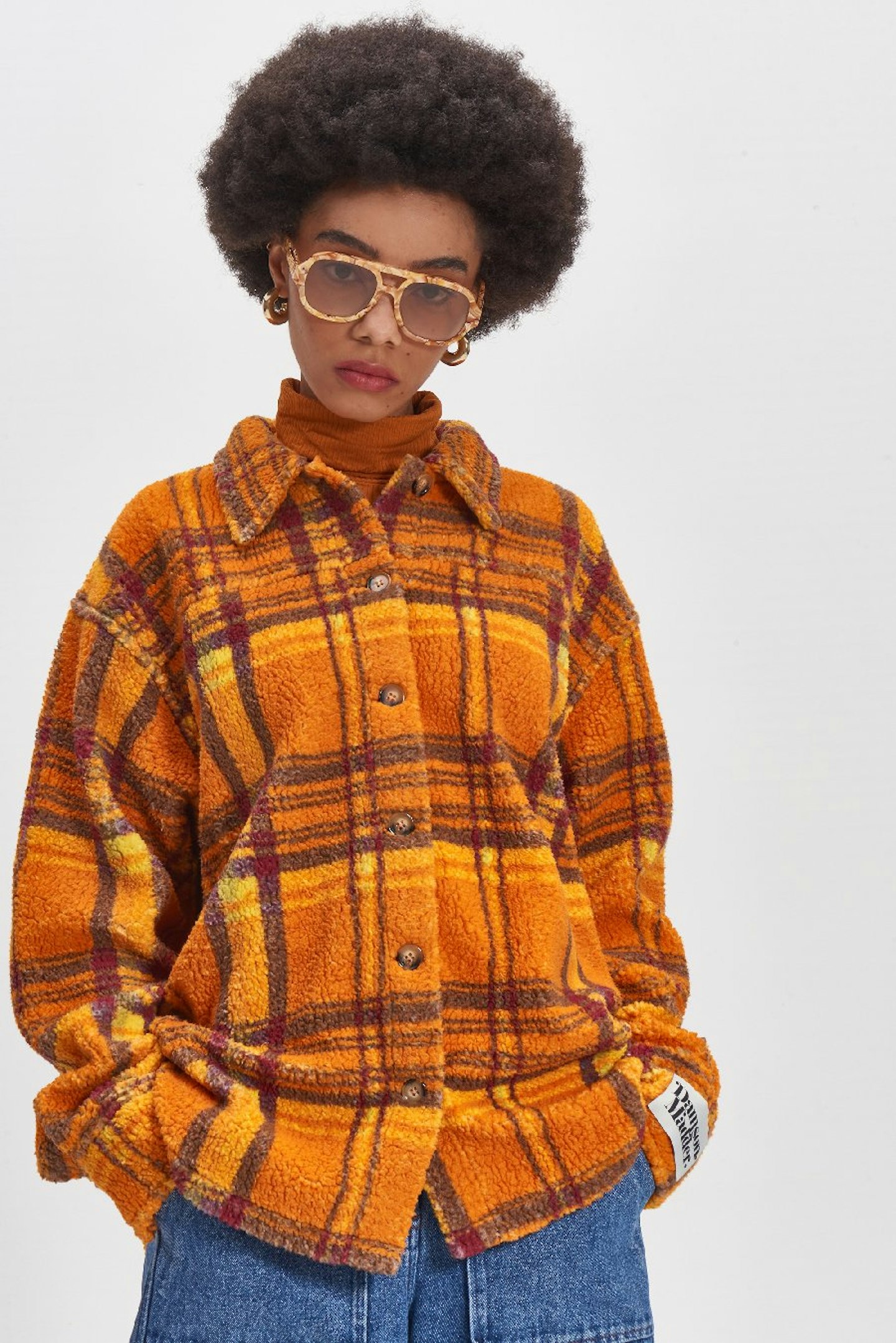 31 of 31
31 of 31Damson Madder, Faith Check Fleece Over Shirt, £85
Damson Madder are passionate about each of their pieces featuring as many sustainable attributes as possible, and being completely transparent it. The brand's aim is to be open about the origin of their fabrics and to the fact that they might not always get it right every time.
.jpg?ar=16%3A9&fit=crop&crop=top&auto=format&w=1440&q=80)